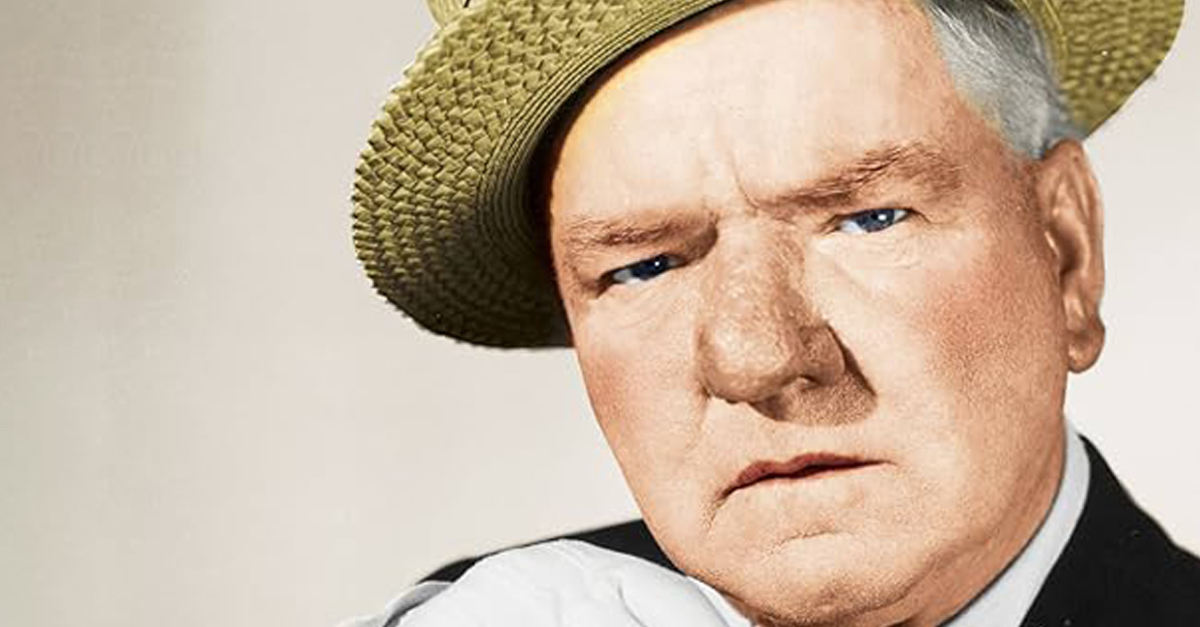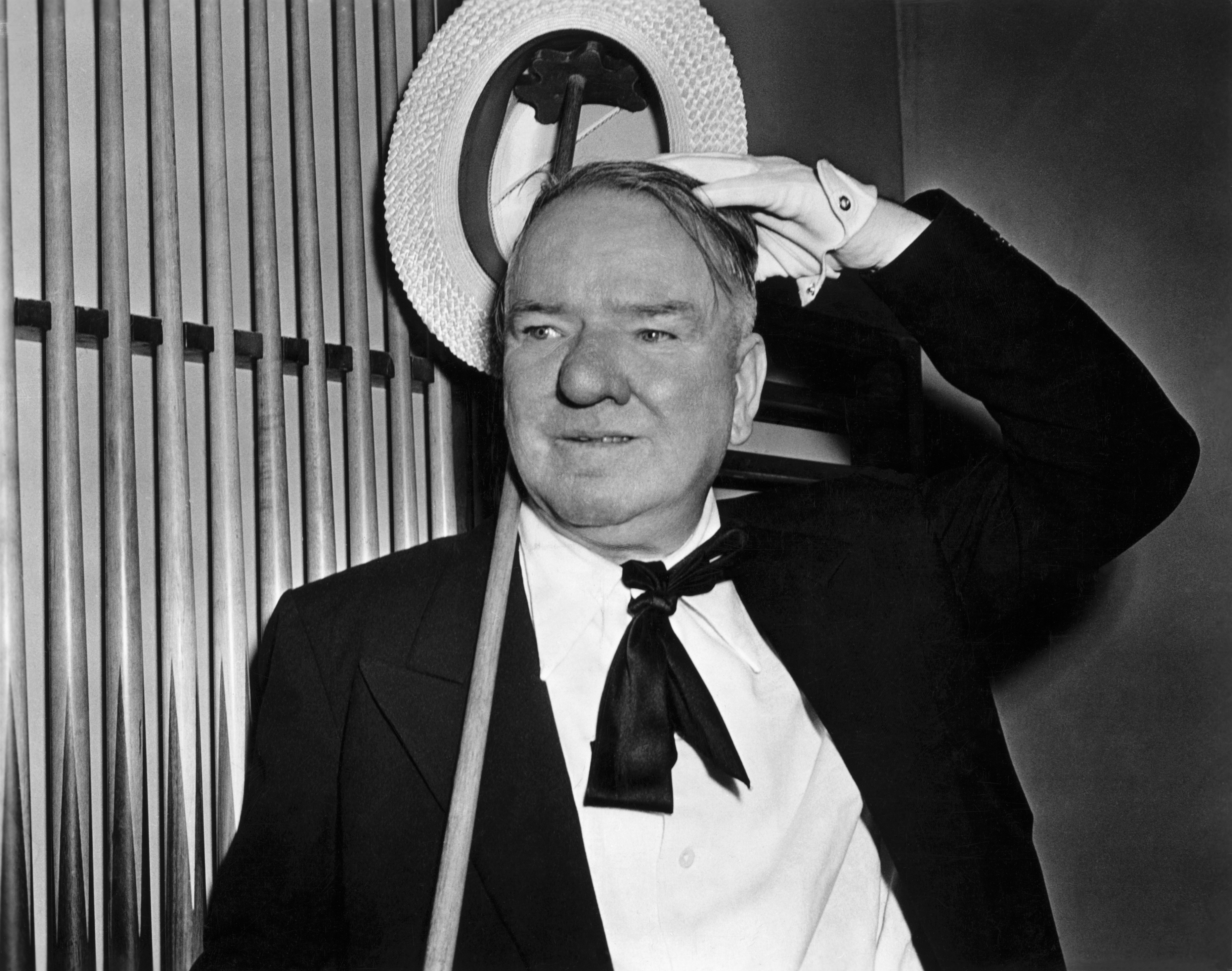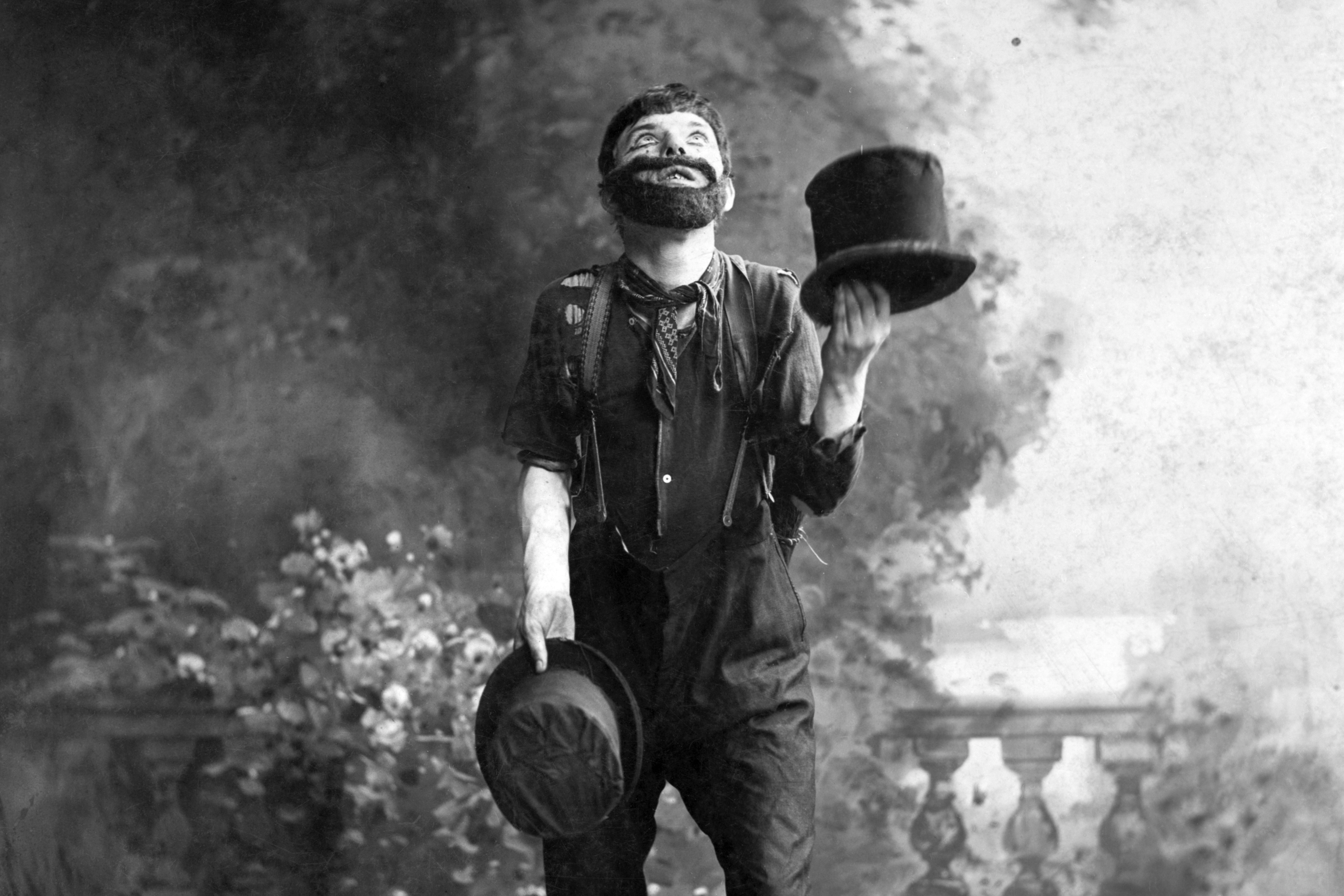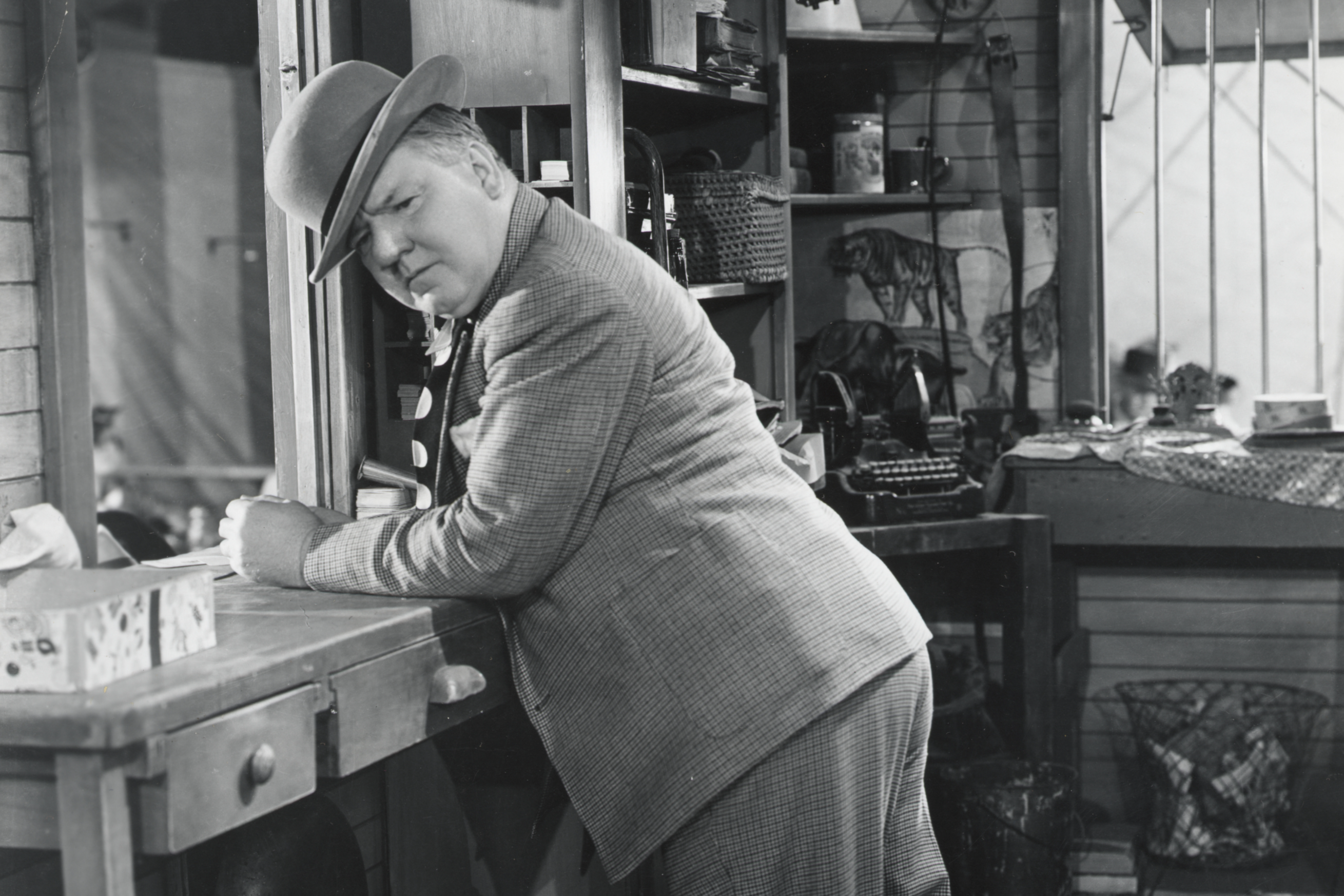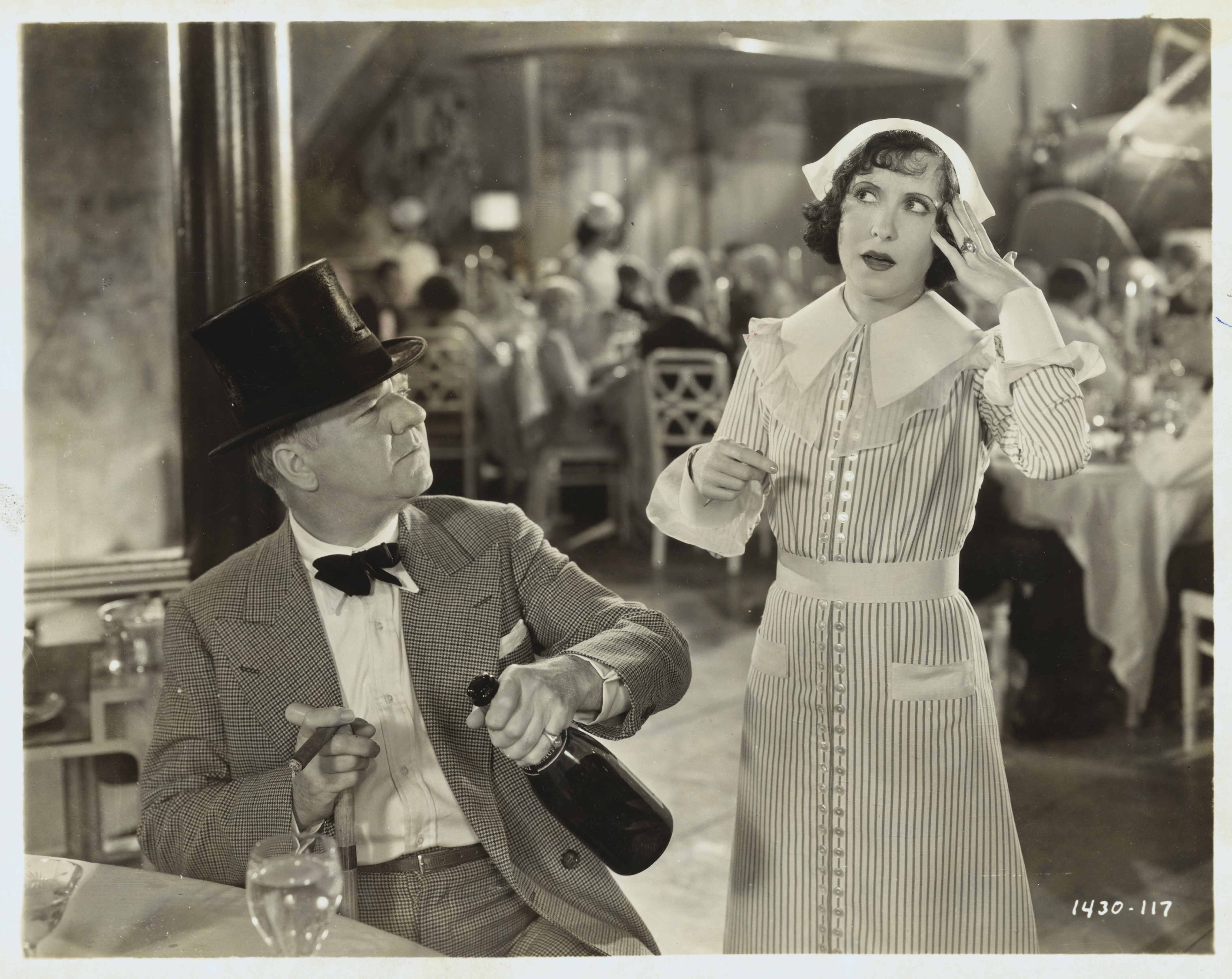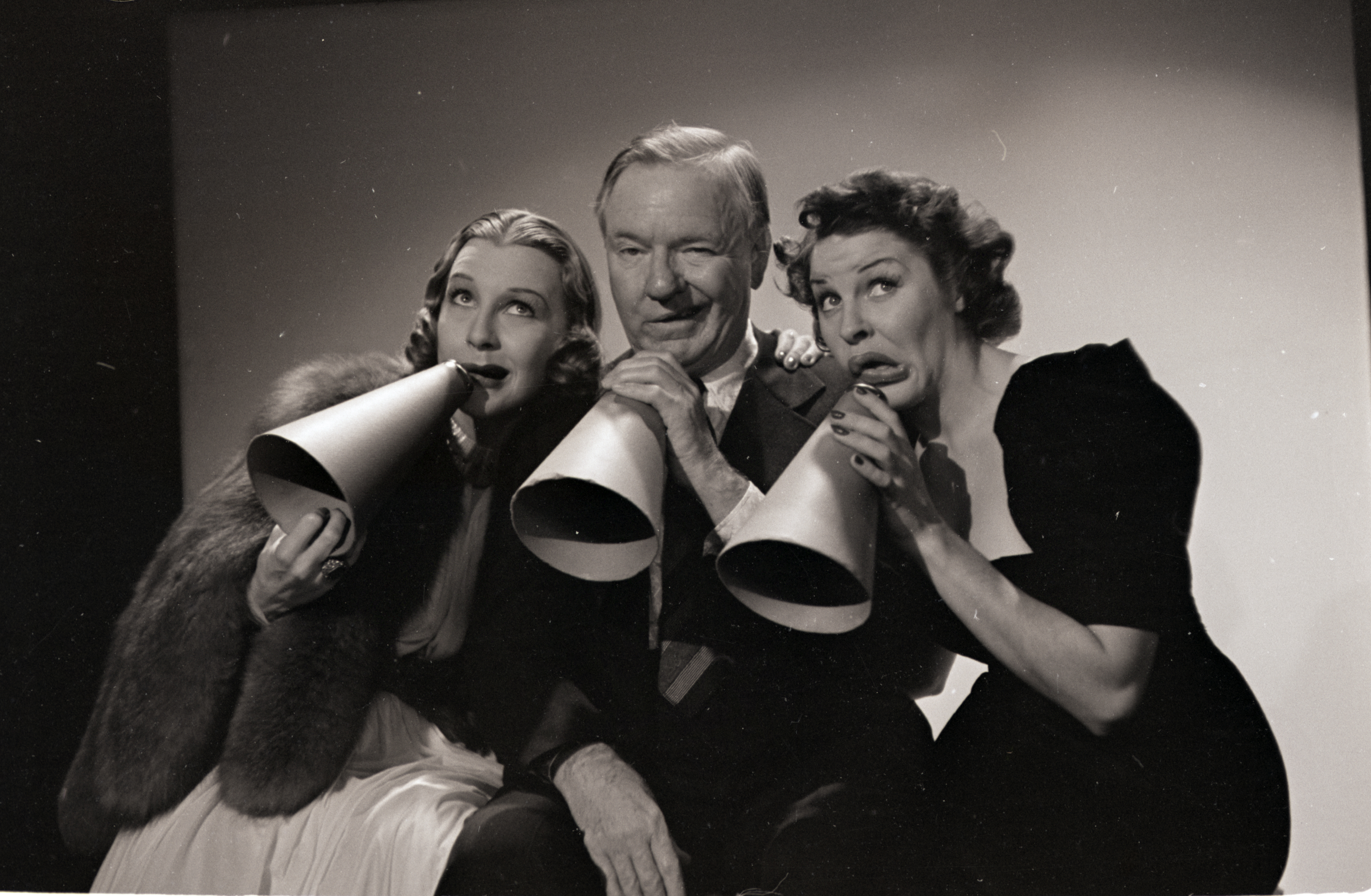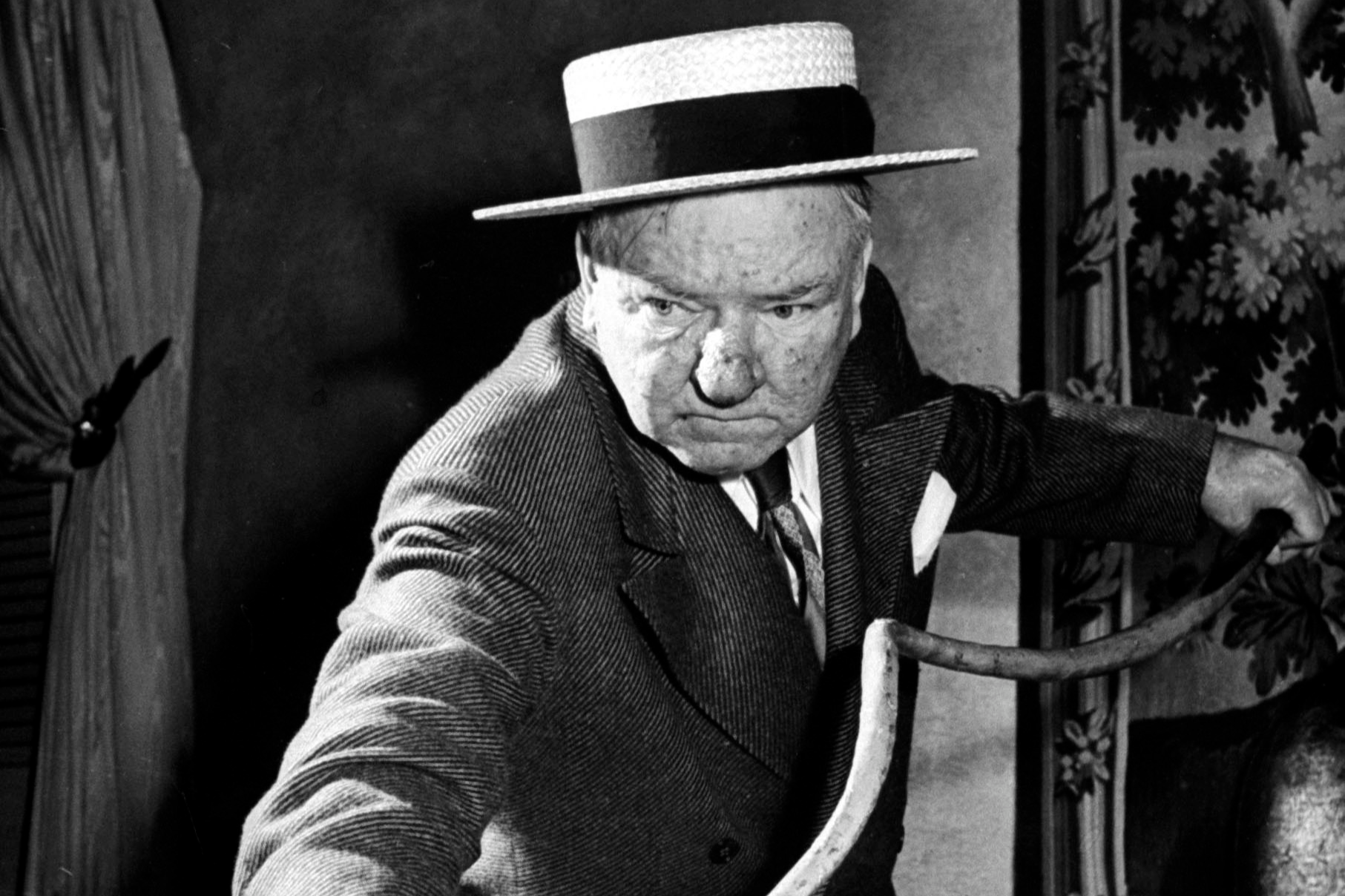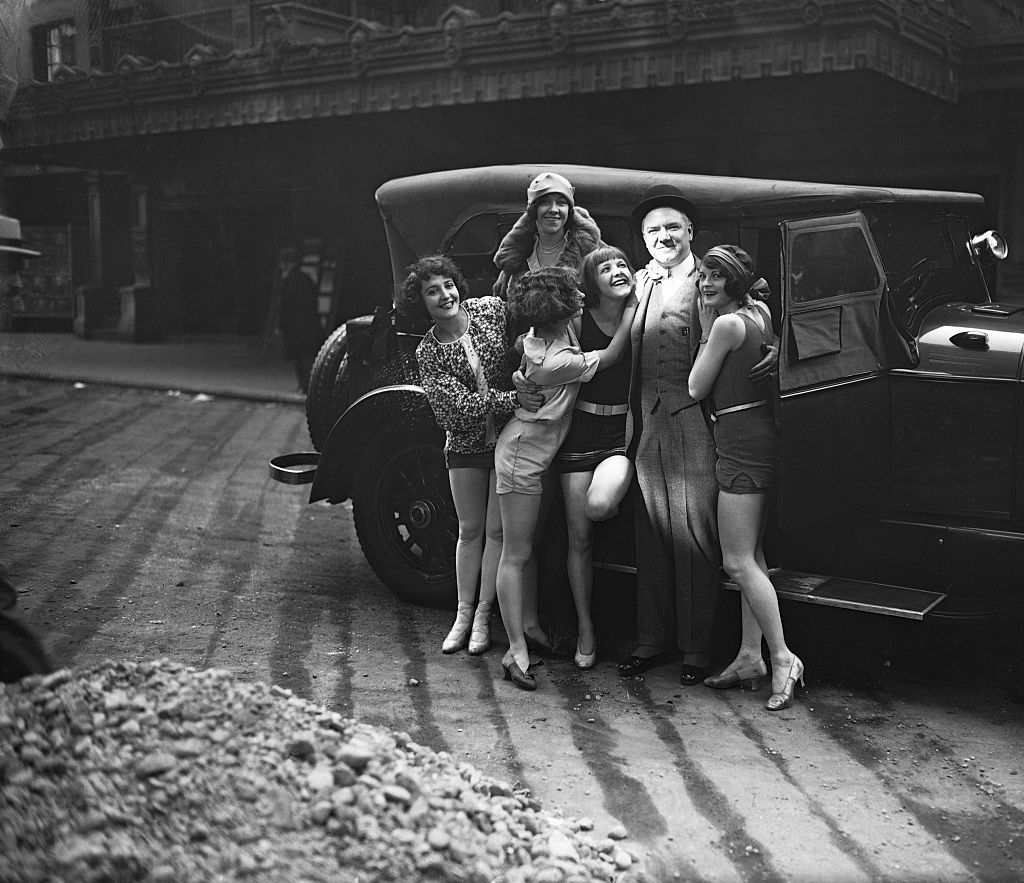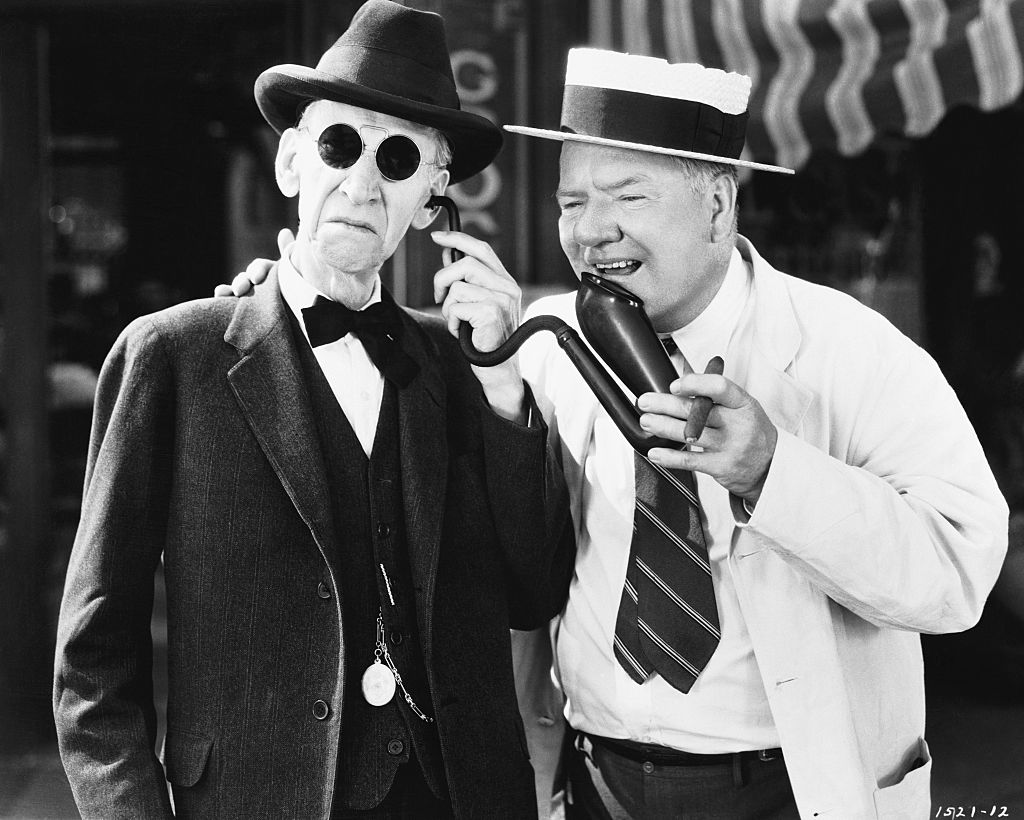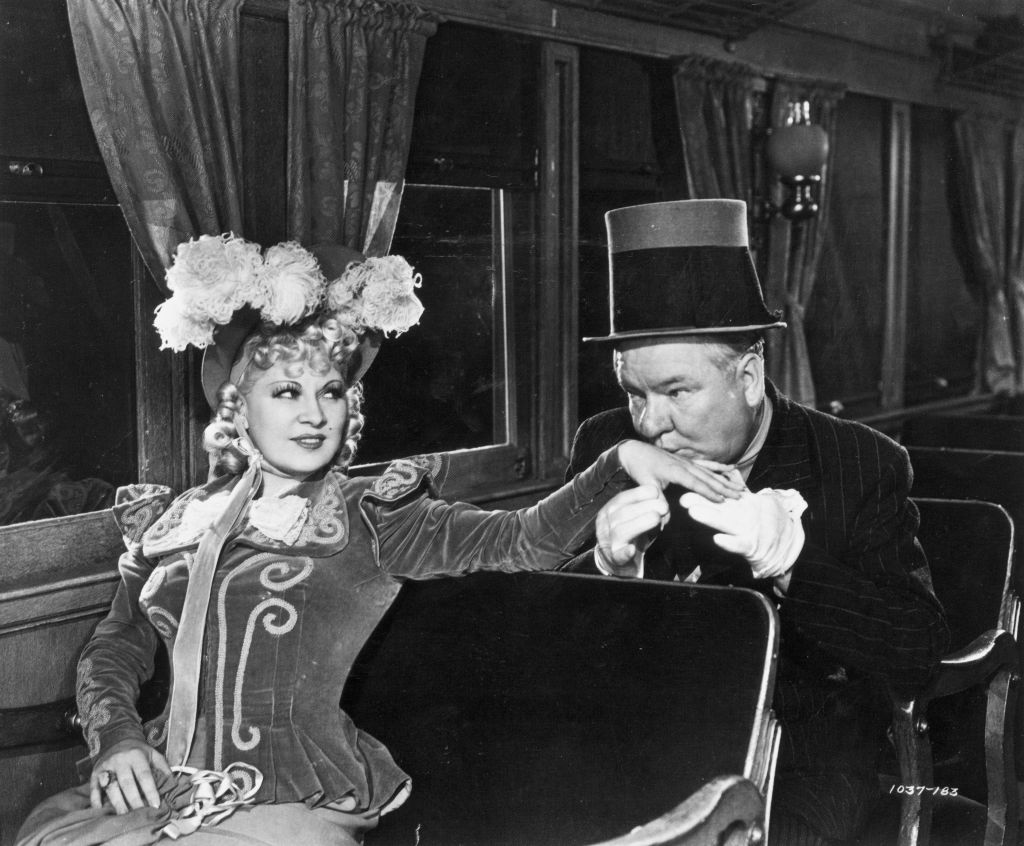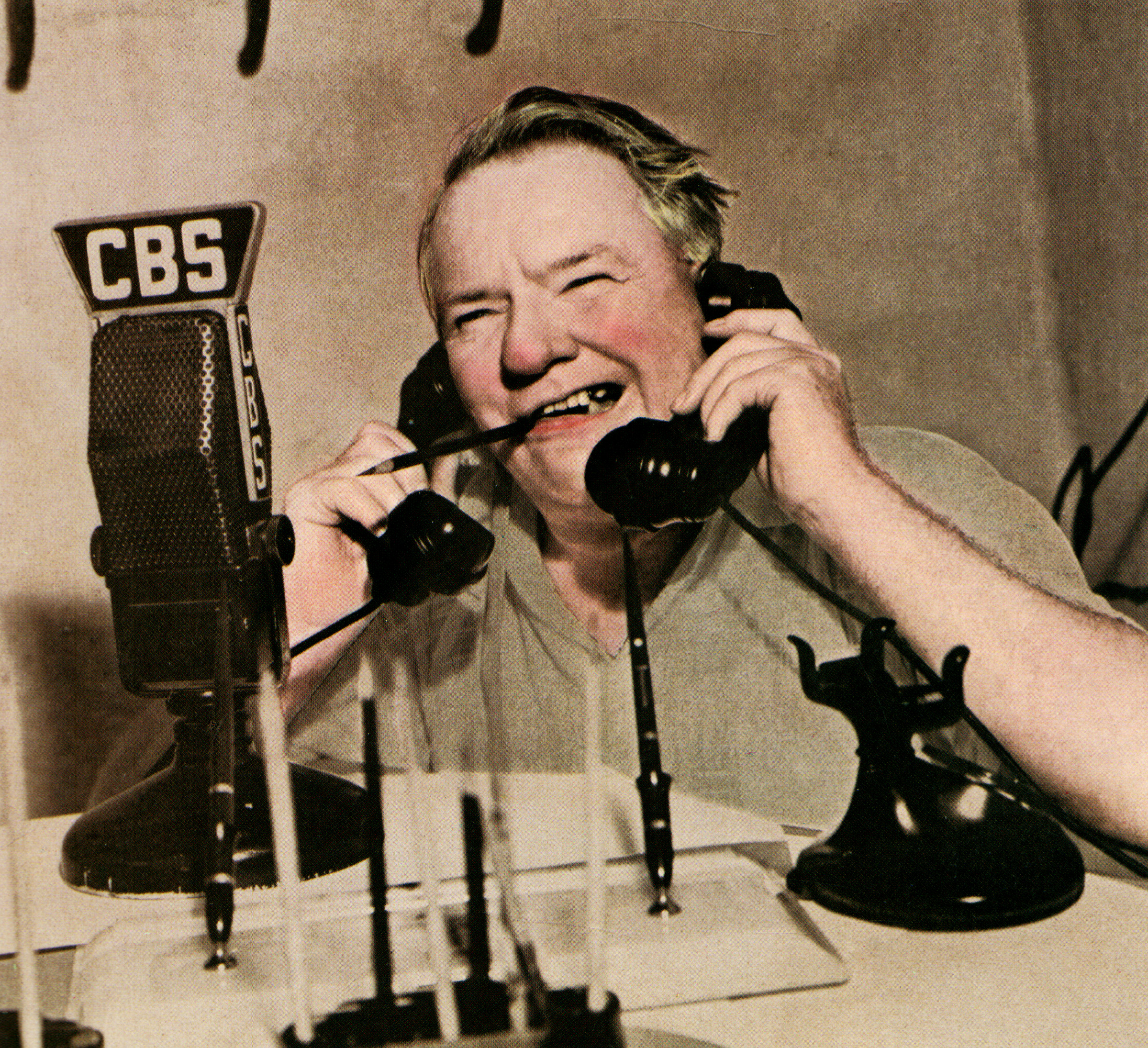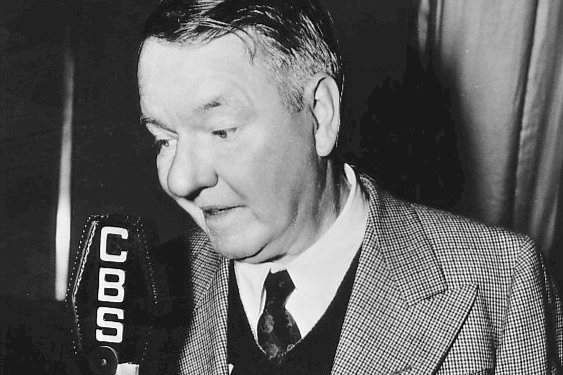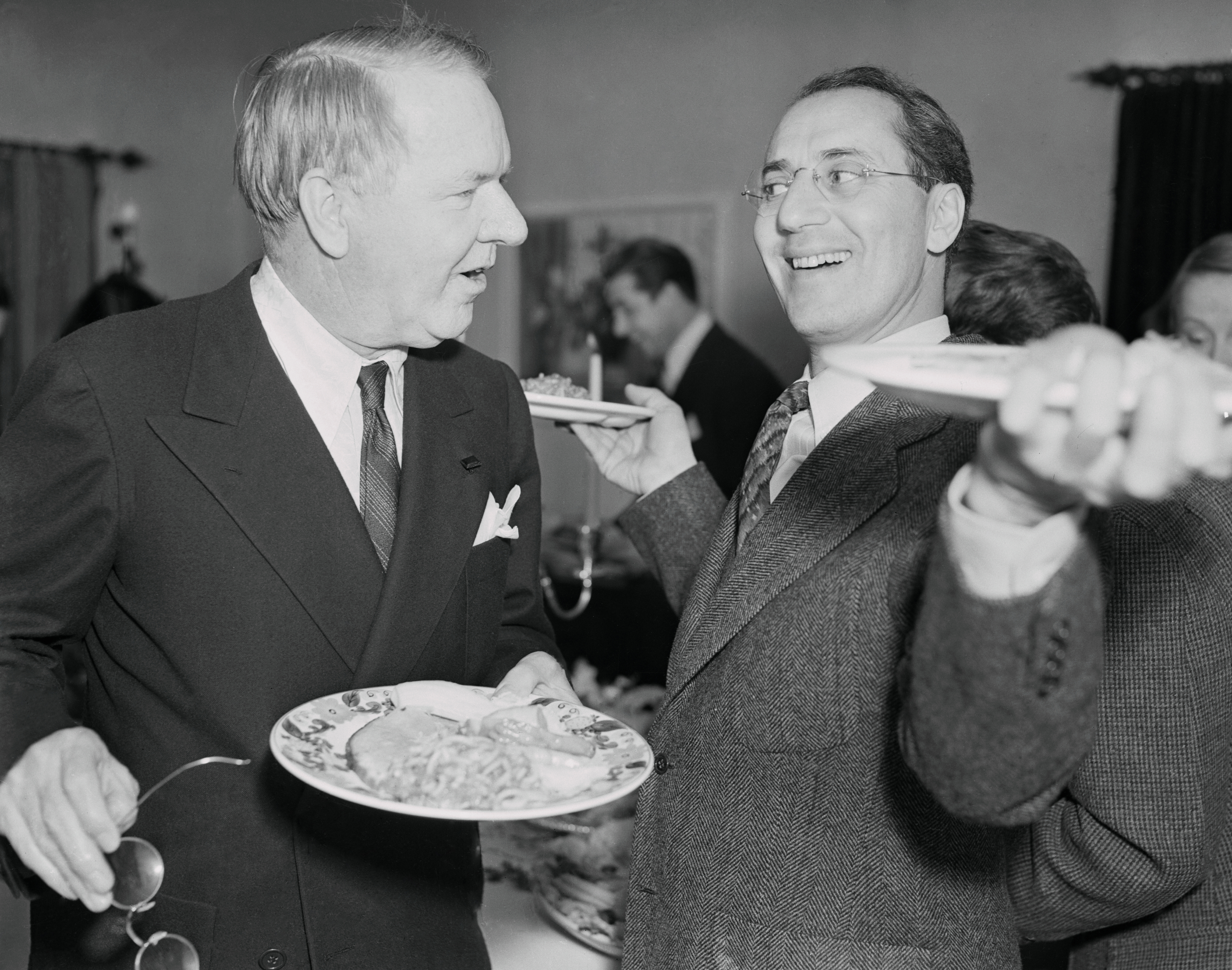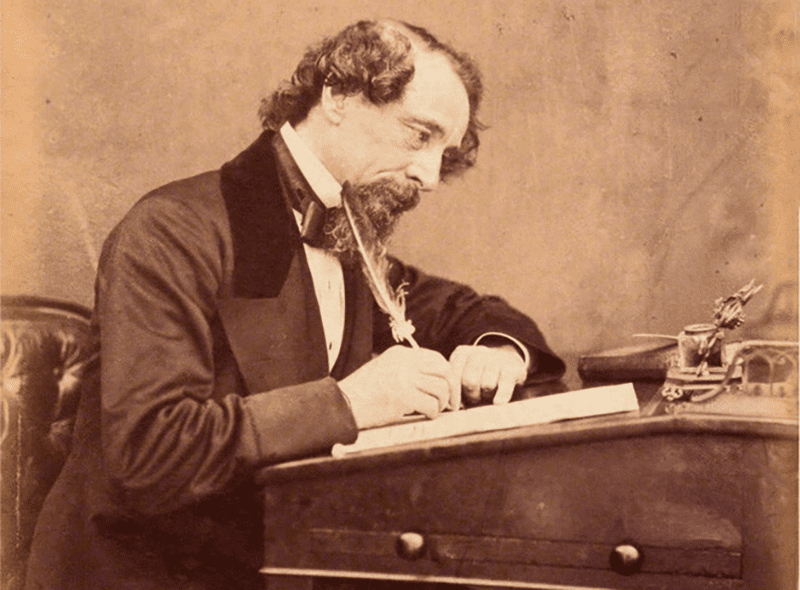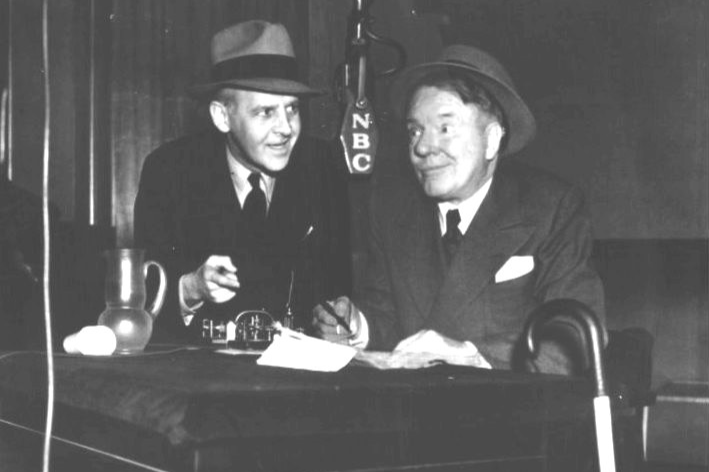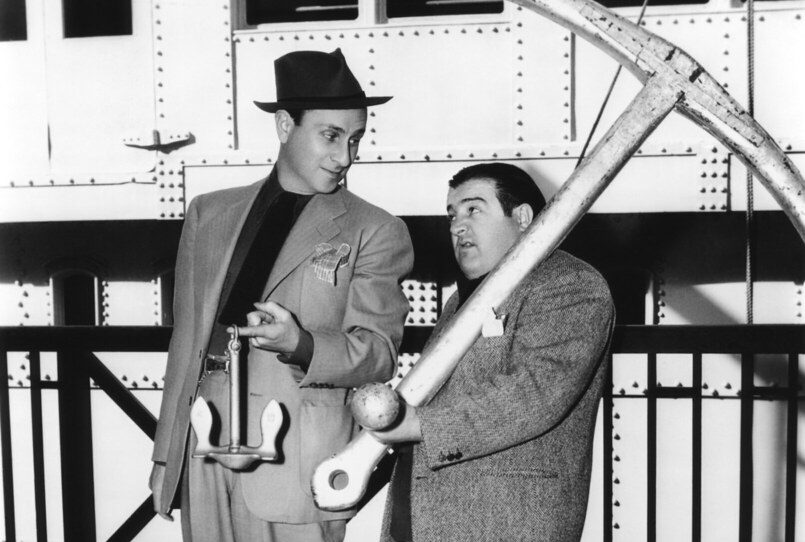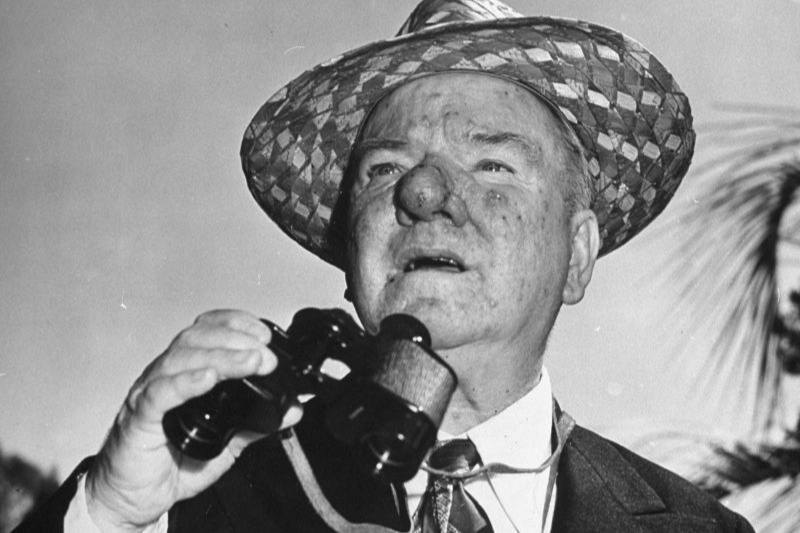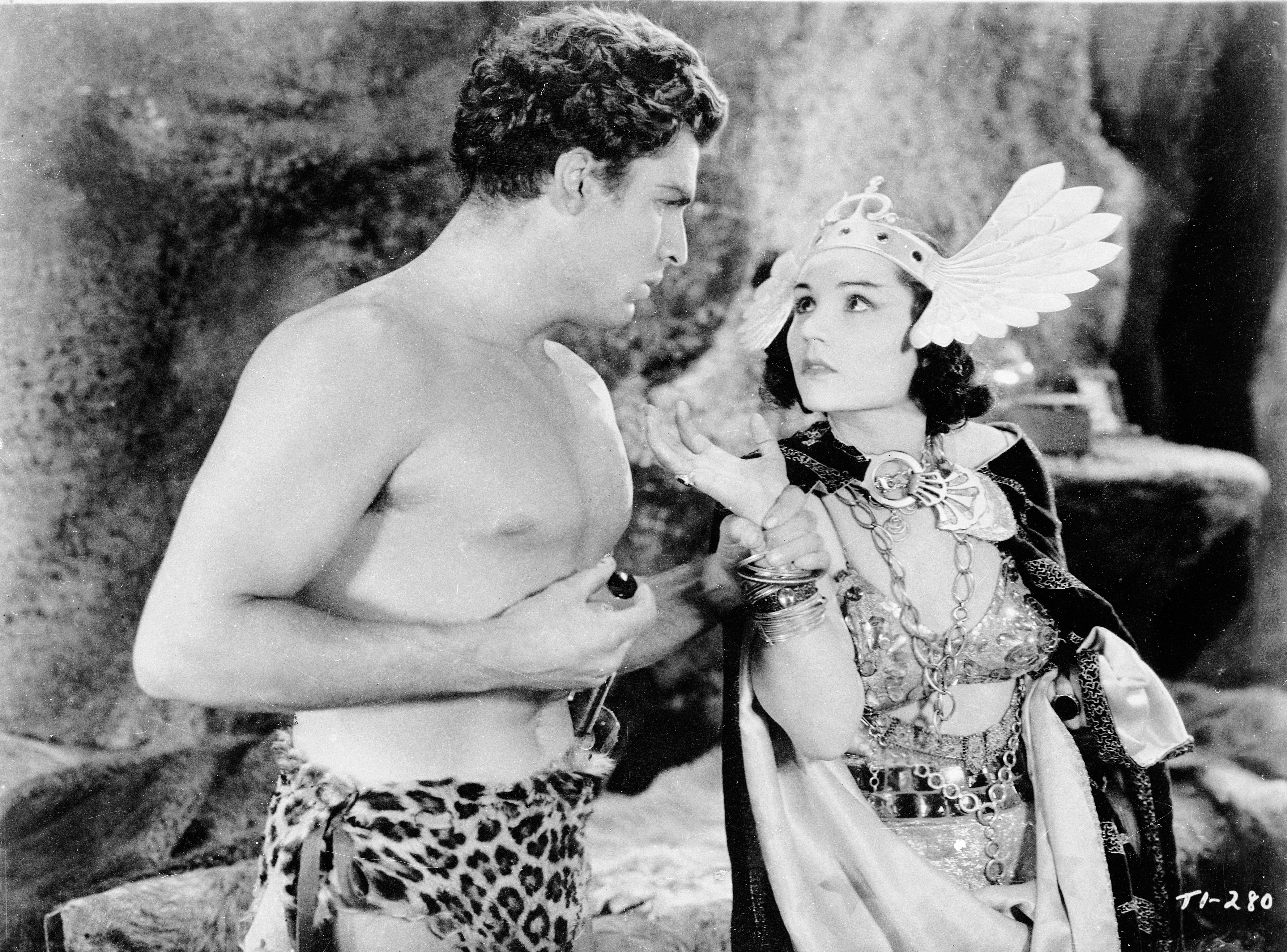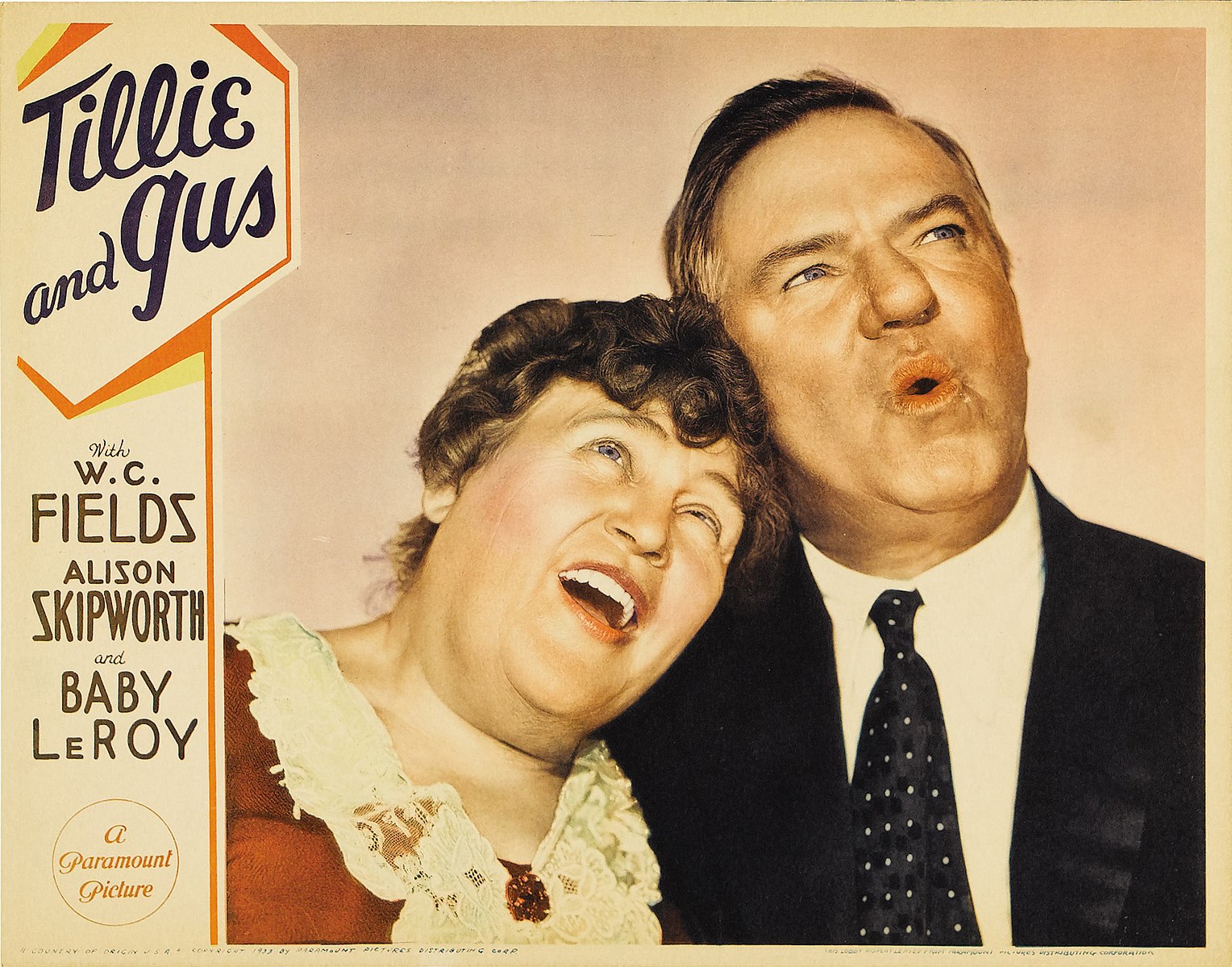WC Fields was a sloshed-out comic genius who couldn't help but take his work home with him—and suffered the grim consequences because of it.
1. He Was Always The Same
You couldn’t exactly call WC Fields a chameleon. Whether he was in a film, onstage or on the radio, Fields presented pretty much the same sardonic, slightly tipsy character. Where it gets difficult is trying to separate the persona from the man.
Surely when Fields got home, he hung up his curmudgeonly character at the door and took a break? You would think so...and yet, well, see for yourself.
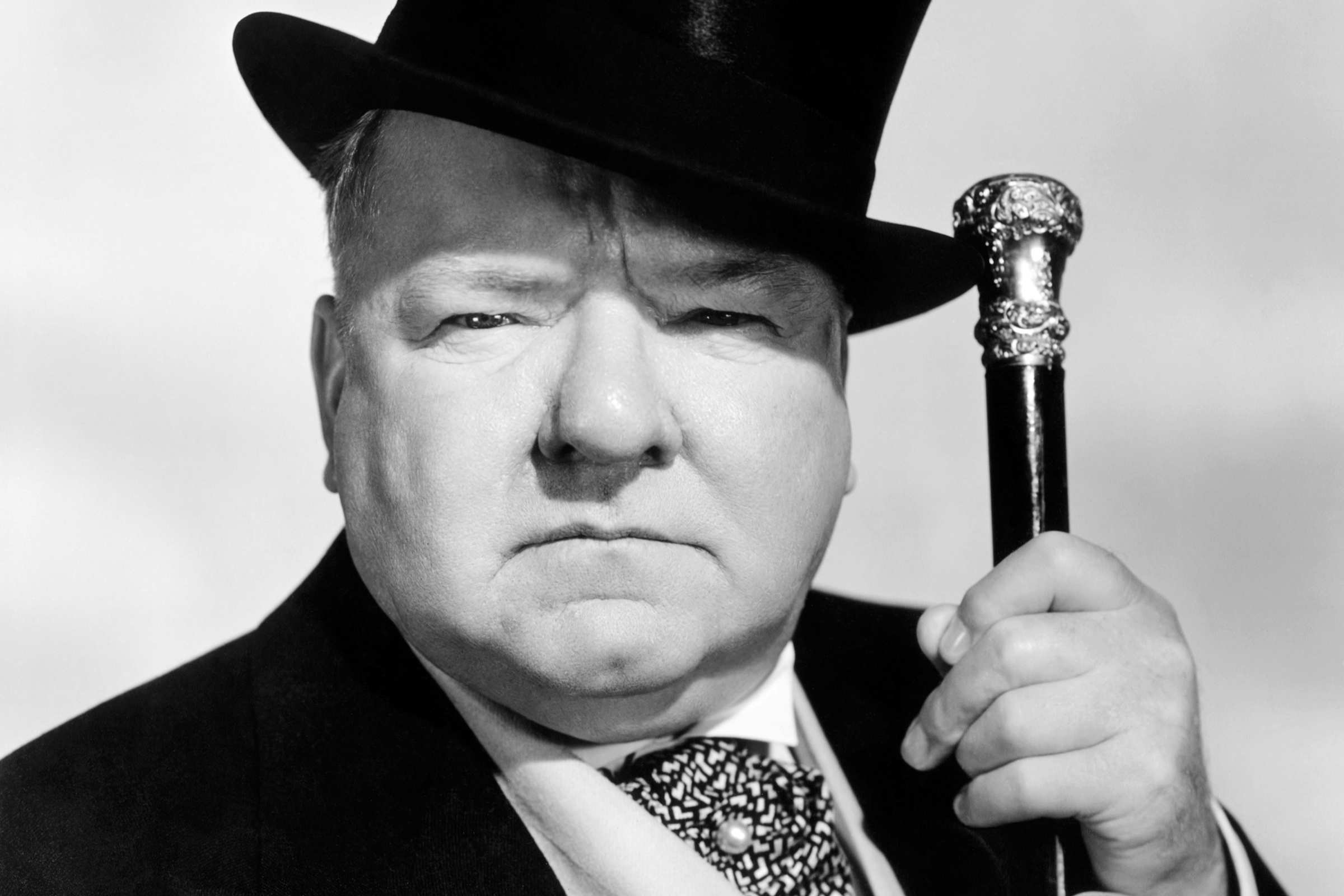 Silver Screen Collection, Getty Images
Silver Screen Collection, Getty Images
Factinate Video of the Day
2. They Didn’t Get Along
At his birth on January 29, 1880 in Darby Pennsylvania, WC Fields’ name was William Claude Dukenfield. The story goes that Fields did not get along with his working class father at all. It got so bad that Fields fled the house as a boy to live on the streets of Philadelphia
It’s quite a colorful childhood story. There's just one problem: It was completely made up.
3. He Found A Passion
It turns out, Fields spent years greatly exaggerating his childhood woes. Fields liked telling anecdotes about growing up tough on the mean streets of Philadelphia, but the truth was something different. Though he might have run away after a tantrum or two, Fields' home life was actually stable and happy.
But there's one tale from his childhood that we can believe: After seeing a local show, young Fields found his passion and it ignited a lifelong career.
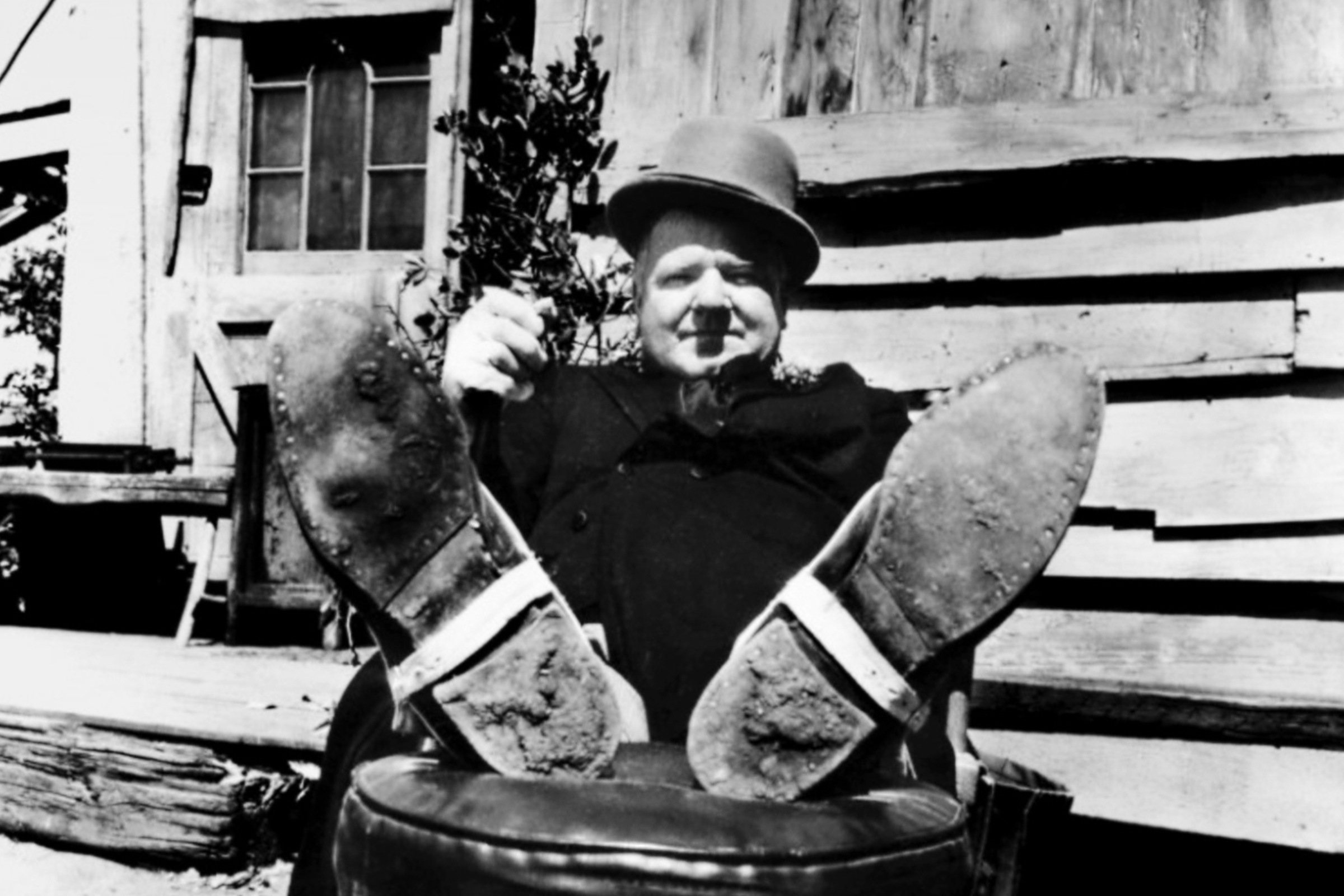 Silver Screen Collection, Getty Images
Silver Screen Collection, Getty Images
4. He Made It Perfect
After seeing a juggler perform, Fields quickly became obsessed with the art. He worked hard at perfecting his skill and by the age of 17 he was performing in theaters and churches. But even from an early age, there was one thing WC Fields always hated: a small crowd.
But his way of making sure the house was full was completely unhinged.
5. He Jumped In
If the theater wasn’t full, Fields would dramatically throw himself into a nearby body of water—a lake, a river, whatever was close by—and pretend to drown. It always caused a commotion and, at the end of the day, “put bums in seats”.
Believe it or not, the drowning thing was working, but Fields also needed an original look. When he couldn’t think of his own, he realized he could just take someone else's.
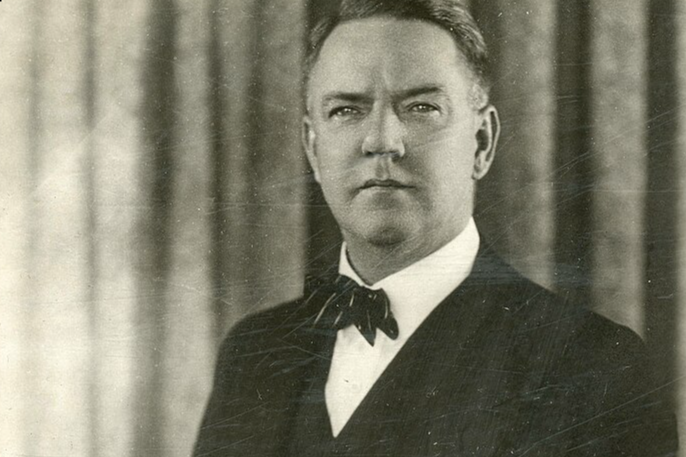 University of Washington, Wikimedia Commons
University of Washington, Wikimedia Commons
6. He Borrowed Without Asking
A man named James Edward Harrigan had become famous as a juggling tramp. Fields couldn't think of his own schtick, so he just copied Harrigan’s. He got a worn out tuxedo, let his beard grow scruffy, and voila he was a “tramp juggler” and ready to perform.
But when Harrigan found out what Fields had done, he came to a show looking for revenge.
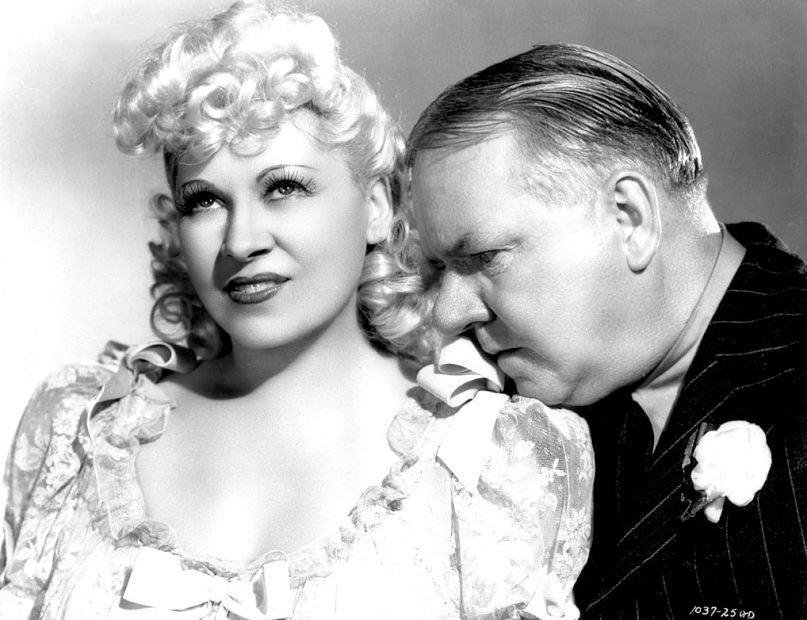 Universal Pictures, Wikimedia Commons
Universal Pictures, Wikimedia Commons
7. He Snuck Out
Harrigan found out where Fields was performing and showed up night looking to have a word with this new hobo juggler. Fields, sensing that this would not go well, got the heads up and managed to sneak out before Harrigan could find him. But this wasn't the end of the story.
Fields knew he could only avoid the irate Harrigan for so long. He had to think of a way out of this mess—or face the consequences.
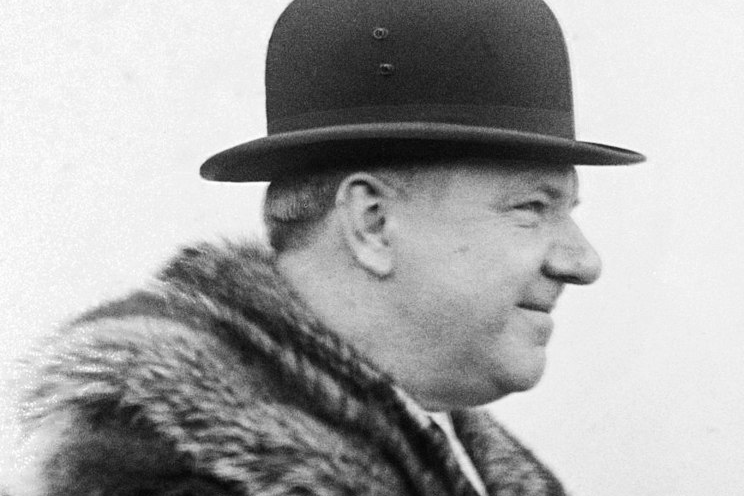 Bain News Service, Wikimedia Commons
Bain News Service, Wikimedia Commons
8. He Had A Fear
Fields had two reasons to change his look: to get Harrigan off his back and because there were now a lot of tramp jugglers out there. So next, Fields spruced himself up and branded himself “The Eccentric Juggler”. He also thought it was a good time to hit the road for a tour.
But as he waved goodbye to his family from the train, he couldn't escape one fear in the back of his mind: Fields had a secret, and he knew that it could completely derail his career.
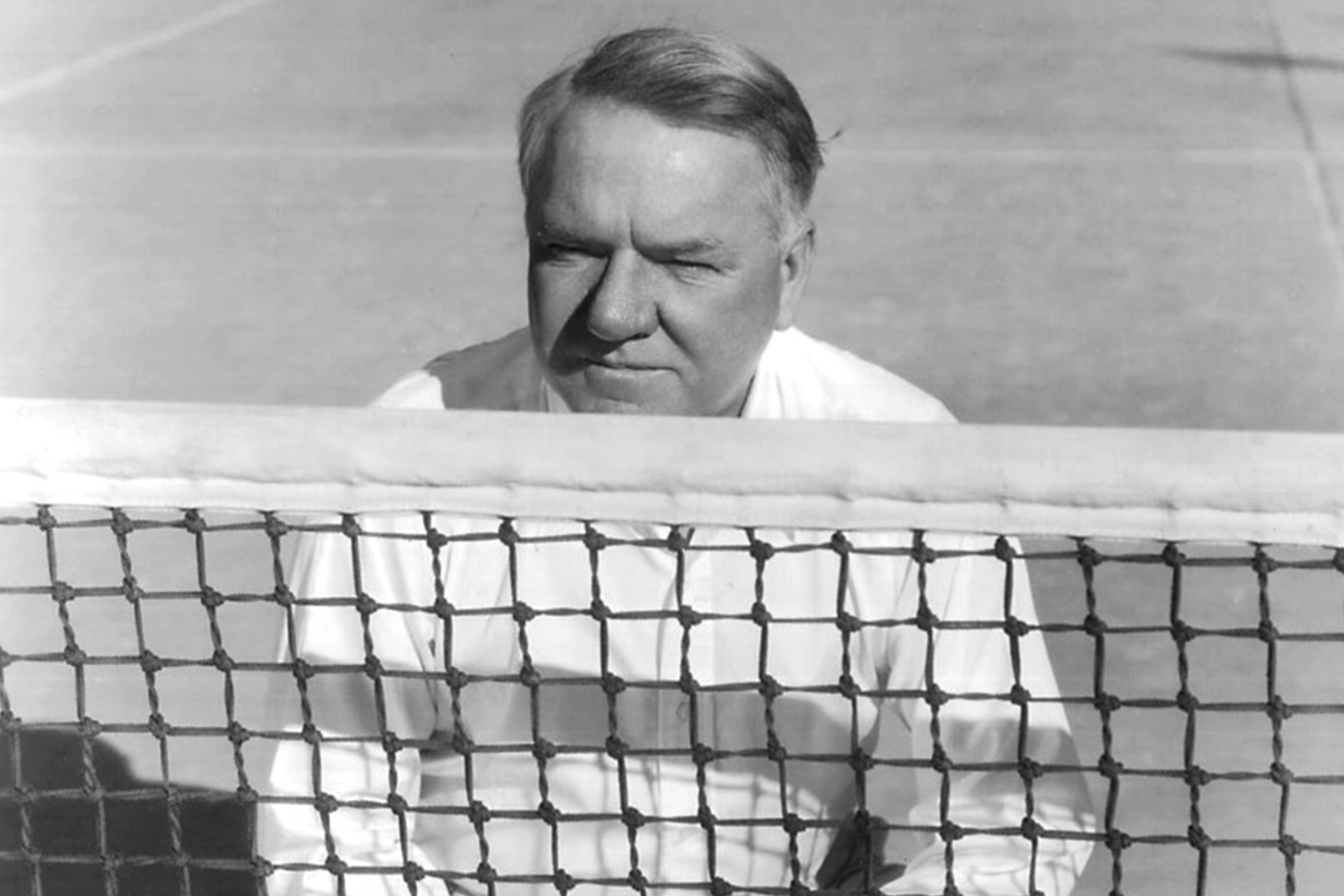 Silver Screen Collection, Getty Images
Silver Screen Collection, Getty Images
9. He Mumbled
Fields knew that adding a bit of hilarious dialogue to his act would give him a boost, but there was a problem. He had a persistent stutter. To combat this, he started mumbling and swearing under his breath, much like his mother used to do. Lucky for him, audiences ate it up, and his new popularity propelled his tour to Europe and Australia.
WC Fields was getting bigger and bigger—but he needed help to reach the next level.

History's most fascinating stories and darkest secrets, delivered to your inbox daily.
10. He Got An Assistant
People were now calling Fields the world’s greatest juggler, and the world's greatest juggler needs an assistant. Fields chose a chorus girl named Harriet Hughes as his sidekick, who he humorously blamed if anything went wrong during his performance. But they didn't just keep it professional.
It wasn’t long before Fields gave Hughes a romantic promotion from sidekick to wife. Once married, Fields realized that his new wife had something that he embarrassingly lacked.
11. He Had To Learn The Basics
Unlike Fields, Hughes had had a proper education, and she knew how to read and write. Fields became her student, and was soon an avid reader. He then started to write letters home. It was only when he didn’t get any replies that he realized no one back at home could read or write either.
Fields was quickly getting comfortable with words, but a Broadway show was about to push him well out of his comfort zone.
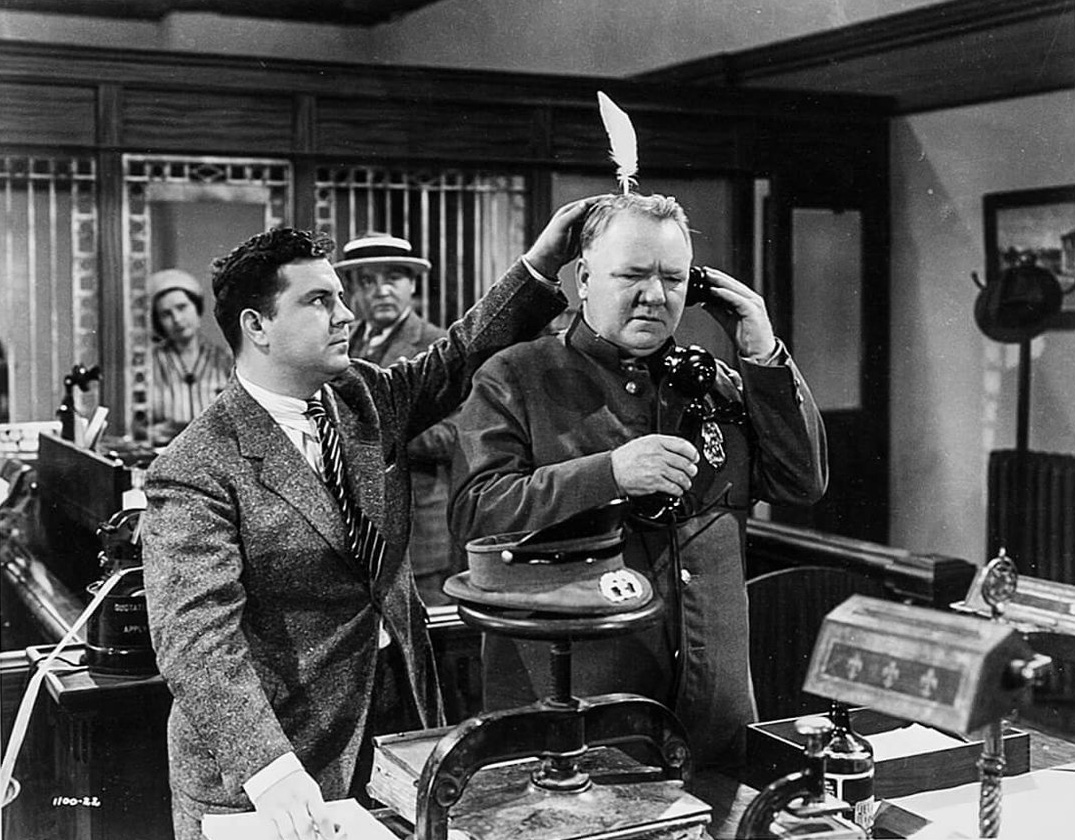 Author unknown, Wikimedia Commons
Author unknown, Wikimedia Commons
12. He Had To Speak
Fields’ popularity got him work on Broadway in The Ham Tree. This was going to be a huge leap: Fields had only mumbled words onstage to this point, and now he was going to have to say actual written words of dialogue in front of a Broadway audience. But WC Fields was ready for the challenge.
With practice and patience, Fields managed to keep his stutter under control. Now there would be no stopping Fields—although someone dear to him would certainly try.
13. He Said Goodbye
In 1904, the Fields had a son, and Hughes saw this as an opportunity to get her husband to settle down and find a real job. But she had her work cut out for her: After a few years of debating, Fields finally made a decision: He chose show biz over his wife and son.
He said goodbye to his little family with an agreement to make regular payments. While he was saying goodbye to his wife and child, he said goodbye to something else he loved dearly.
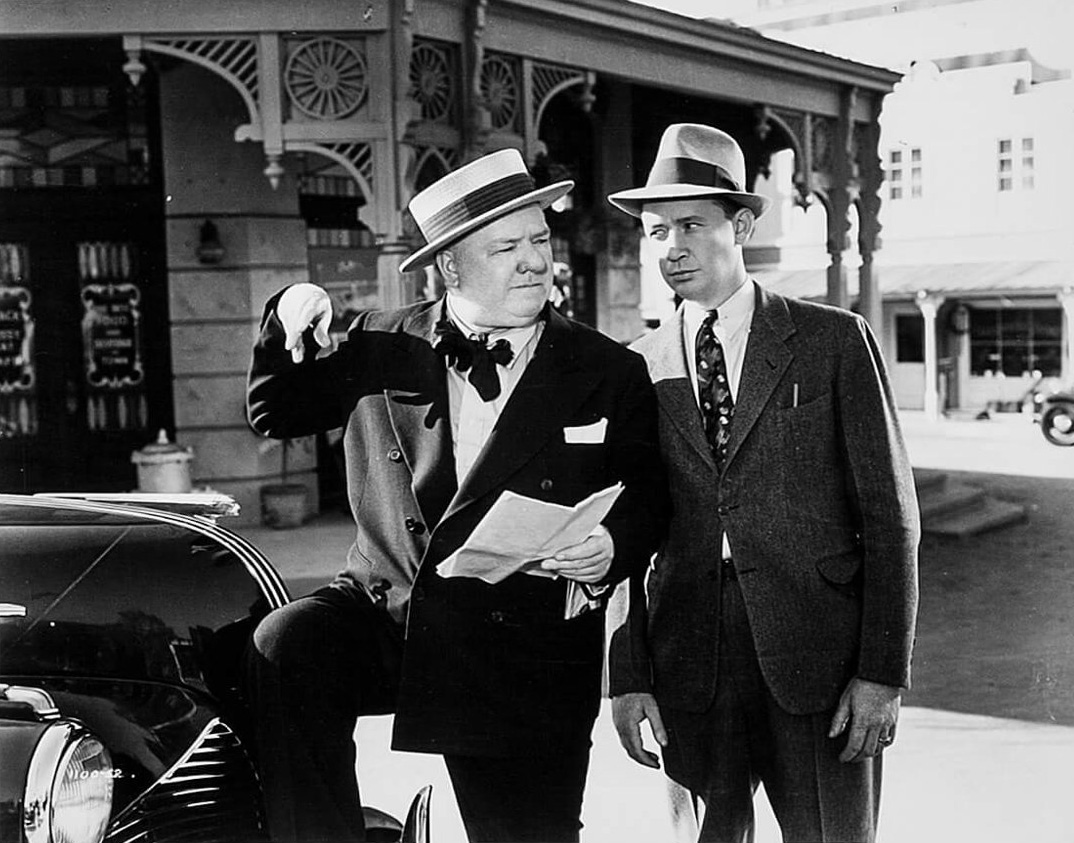 Unknown author, Wikimedia Commons
Unknown author, Wikimedia Commons
14. He Awed Audiences
When Fields joined the Ziegfeld Follies revue on Broadway, he finally quit juggling—but he just replaced the balls with billiard balls. He started performing a new show that used a specially made billiards table and strangely shaped cues. This rigged equipment let Fields wow audiences with amazing and hilarious trick shots.
But Fields got an even better reception from one of his co-stars.
15. He Refused To See His Boy
Fields’ Follies act attracted showgirl Bessie Poole. He was still married, so he and Poole could go no further than boyfriend and girlfriend. This didn’t stop them from having a child, who they named William Rexford Fields Morris. Fields apparently never saw his son, not even once. He had only one focus: his career.
Poole had a career too, so she had a heartbreaking decision to make.
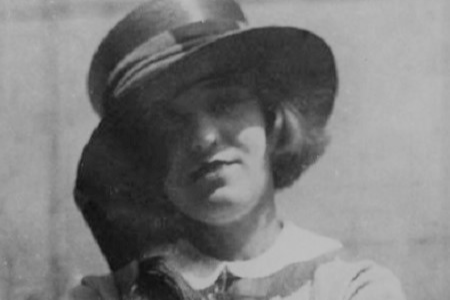 Unknown author, Wikimedia Commons
Unknown author, Wikimedia Commons
16. They Left Him Behind
Poole was basically a single mom as Fields, the father of her child, was still married to his first wife. Poole realized that having a kid would hinder her passionate pursuit of fame. She happened to know a couple who had no children, and she handed her son over to them. Fields and Poole went off to find fame, leaving their baby behind them.
If Fields was trying to forget the son he left behind, his next project was not about to let him.
17. He Was A Con
Fields was back on Broadway in a show called Poppy. Here, he played a grifter who adopts an orphan and teaches her his ways. Playing a con artist appealed to Fields, and he decided to integrate it into his stage persona.
Well, as we know, a new persona required a new look. Instead of coming up with his own, he once again looked for one he could "borrow".
18. He Needed A Makeover
Fields looked to a very strange place for his next look. Around this time there was a comic strip called Ally Sloper. Sloper was also a con artist—and he had a very identifiable wardrobe. He always wore a top hat, a coat and carried a cane. Fields adopted this costume as his own and never looked back.
So far, Fields had “borrowed” two looks from others. That means you could call what Fields did next the definition of irony.
19. He Got Paranoid
Fields suddenly realized that if he could "borrow" other people's ideas, then someone might try to "borrow" his! First, he registeried his sketches with the copyright office: But he still needed to do something drastic. He put a large ad in Variety warning any borrowers that they'd face his lawyers if he caught them using his material.
Well, he was definitely going to need his lawyers soon, but not for the reason he thought.
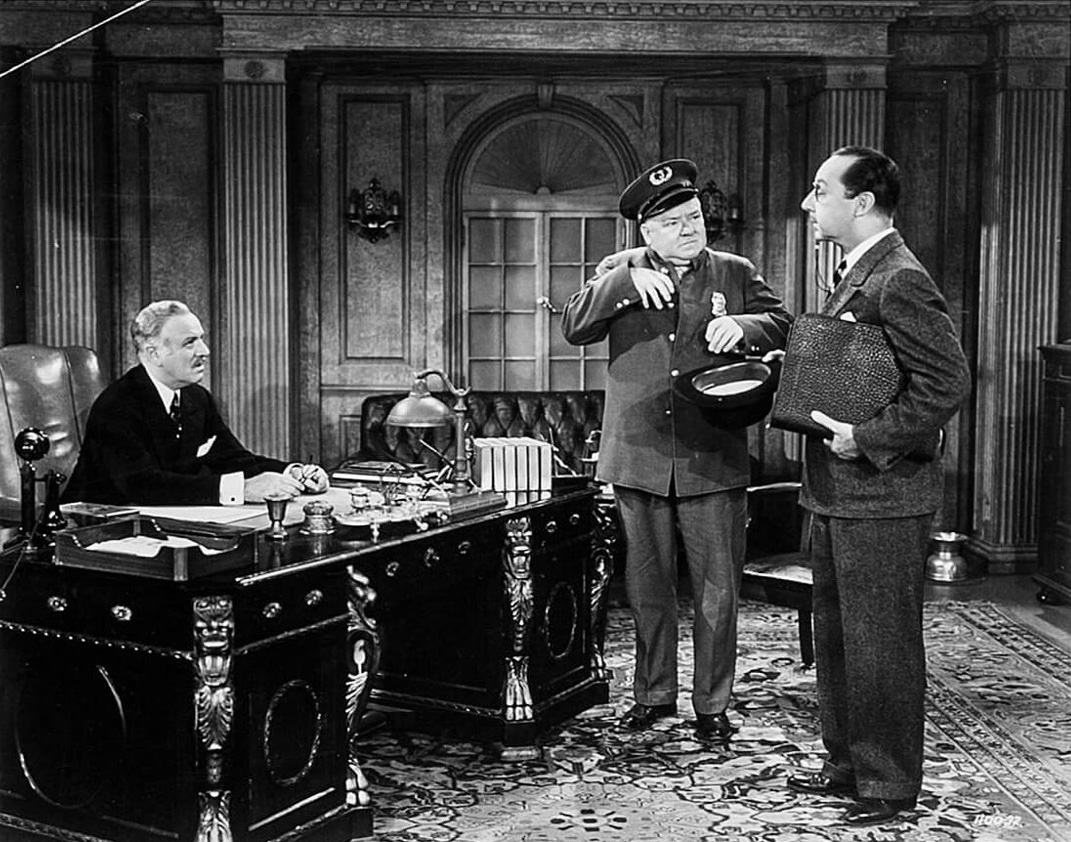 Unknown author, Wikimedia Commons
Unknown author, Wikimedia Commons
20. He Slayed On Stage
Fields had a sketch where a dentist has his patient say "aah" then a canary flies in their mouth. The gag was a hit with audiences—except during one performance the canary hit a piece of scenery and fell to the stage floor. Officers on the scene, grabbed the injured bird and got into a taxi. They had two objectives. Save the bird’s life and charge Fields for mistreating animals.
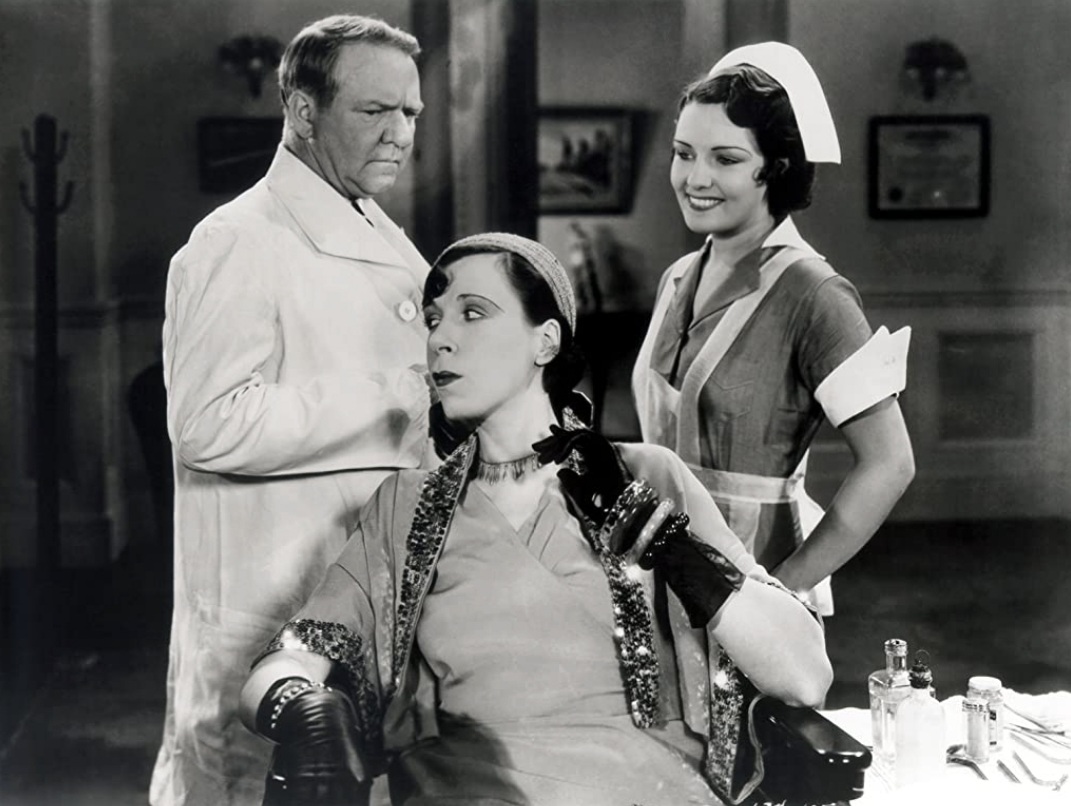 Paramount Pictures, Wikimedia Commons
Paramount Pictures, Wikimedia Commons
21. He Went To Court
The case of the canary actually made it to court, and Fields was a wreck. To his relief, the judge stated that Fields had done nothing cruel to the bird but—insert courtroom gasp here—the officers had. Witnesses had seen the officers drop the bird outside the theater.
Fields was a free man—free to move his career into an astonishingly new level.
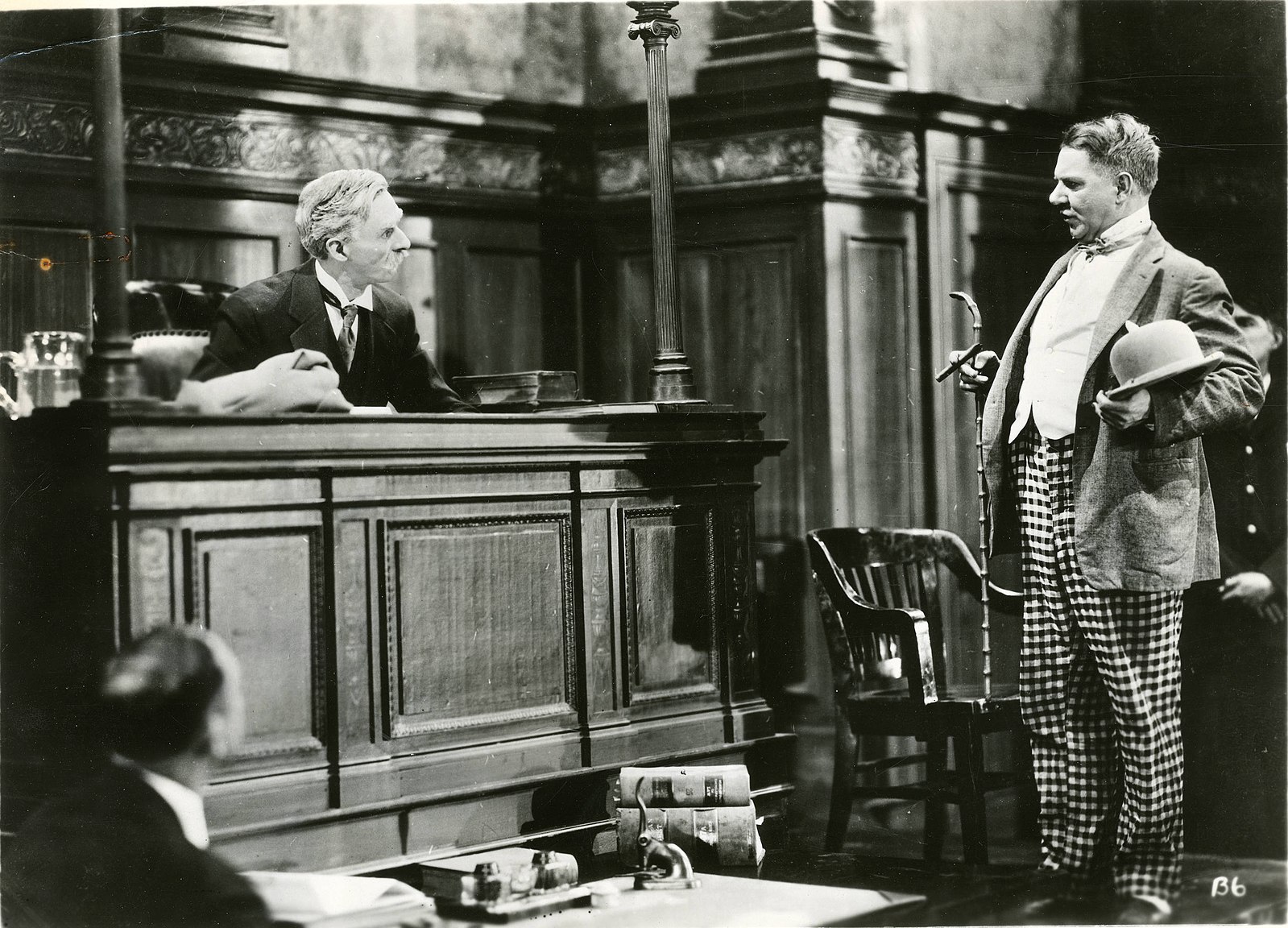 University of Washington, Wikimedia Commons
University of Washington, Wikimedia Commons
22. He Took A Sip
After a successful film version of Poppy, there was That Royle Girl . Fields was a last minute addition to bring comic relief to the film. The joke was that Fields’s character was almost constantly inebriated. This gave Fields an idea. It might be funny for his ongoing con artist character to be a heavy drinker.
He had no idea what he'd just stumbled upon. Audiences loved Fields’ inebriated con artist, but we’ll soon see how it was the beginning of the end for Fields.
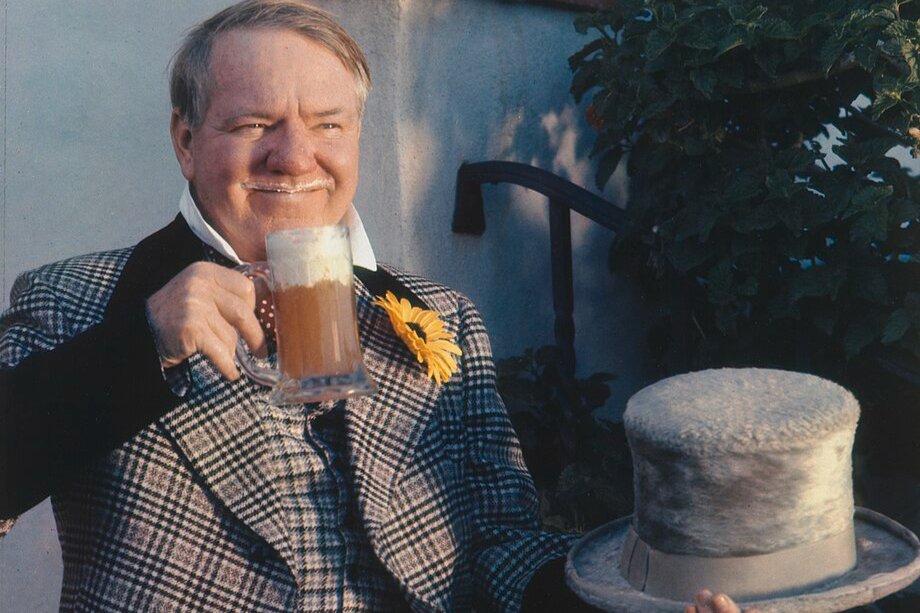 Harry Warnecke and Lee Elkins, CC0, Wikimedia Commons
Harry Warnecke and Lee Elkins, CC0, Wikimedia Commons
23. He Had To Move
Fields’ inebriated character found huge success in silent movies, which he made in New York. When Paramount decided to move its entire operation to the west coast, Fields had to choose between Broadway and Hollywood. The sunshine of California won out, and Fields got ready to move.
Before he could leave New York, he had a loose end he needed to tie up—and it was going to be nasty.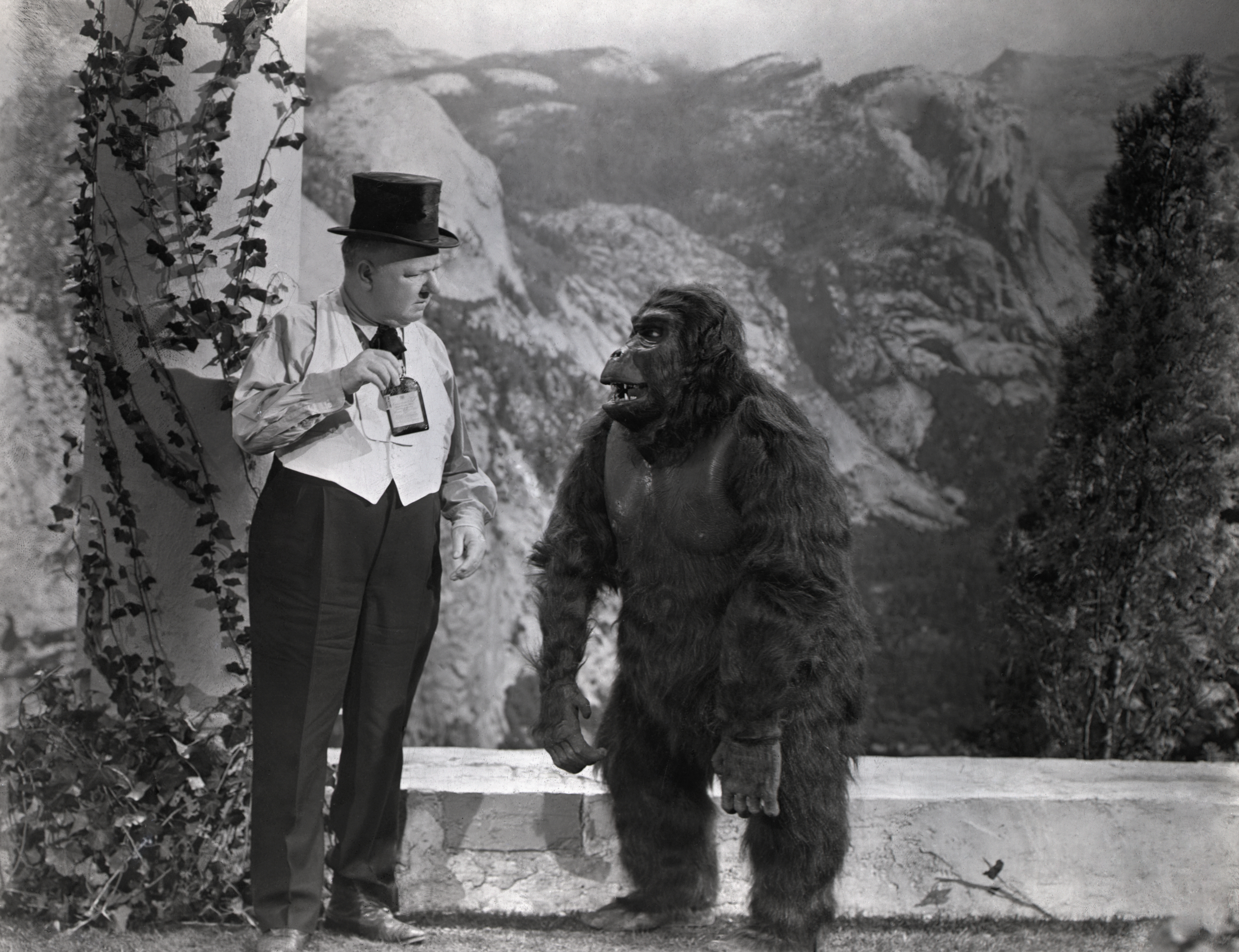 Bettmann, Getty Images
Bettmann, Getty Images
24. He Made Her Sign
Fields wanted to arrive in Hollywood a free man, so he had to dump his girlfriend Poole. He heartlessly had her sign an affidavit saying he was not the father of her child, for which he paid her $20,000. While Fields did support his son until the boy turned 19, when asked about Poole thereafter, he denied even knowing her.
Fields was heading to Hollywood without a care—but karma was waiting for him in the Sunshine State.
25. He Partnered Up
When Fields’ arrived in Hollywood, Paramount partnered him up with Chester Conklin, an actor and friend of Charlie Chaplin and Mabel Normand. Fields likely thought he’d take Hollywood by storm. He was in for a rude awakening.
His first films were all financial failures. Notably, these failures were all silent films—and it came out later that Fields had a very weird habit when making them.
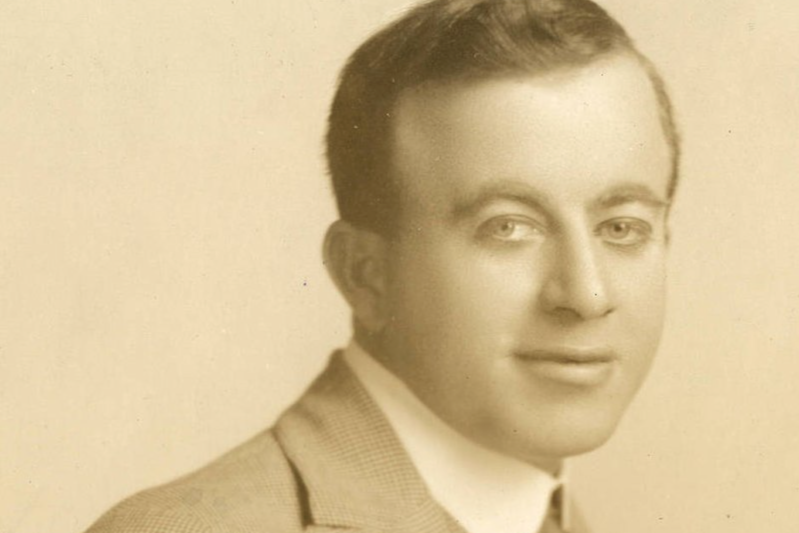 University of Washington, Wikimedia Commons
University of Washington, Wikimedia Commons
26. He Wore A Fake
When Fields made silent films he did something very odd. He insisted on wearing a very cheap fake mustache. When asked later, Fields said he spitefully wore it because audiences hated it. Okay, so this could be part of the reason his silent films flopped.
Next, Fields would turn to the talkies, where using his voice would either make or break his career.
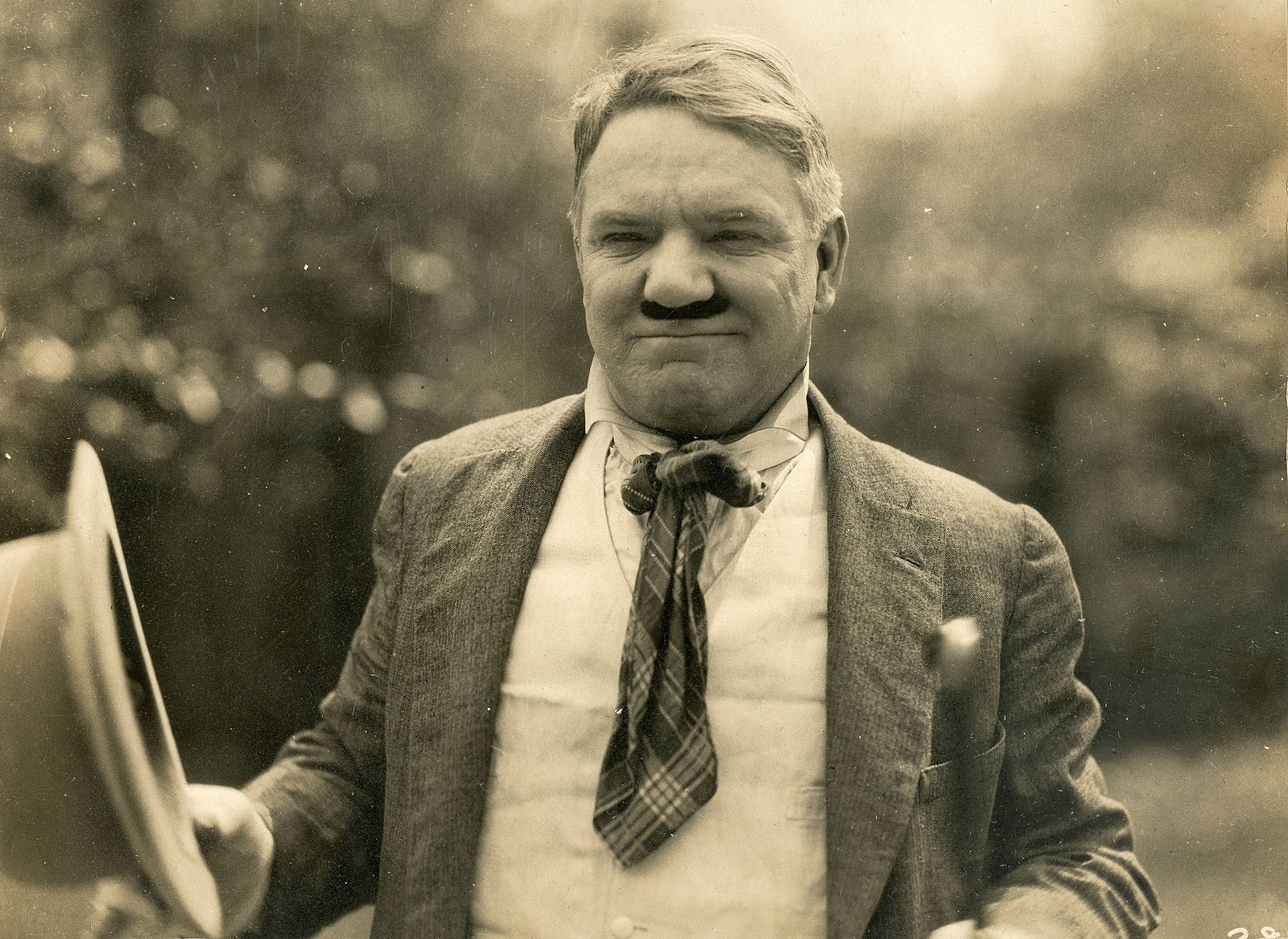 University of Washington, Wikimedia Commons
University of Washington, Wikimedia Commons
27. He Was Absurd
In 1932, Fields got a role in Million Dollar Legs, which some have called the funniest movie ever made. Other critics called it “silly” “odd,” and “artless”. The story is about a president of a fictional country entering the 1932 Olympics because he has strong legs. Believe it or not, it wasn't a smash hit...
Fields was desperate to succeed in Hollywood—and he’d go to absurd lengths to do it.
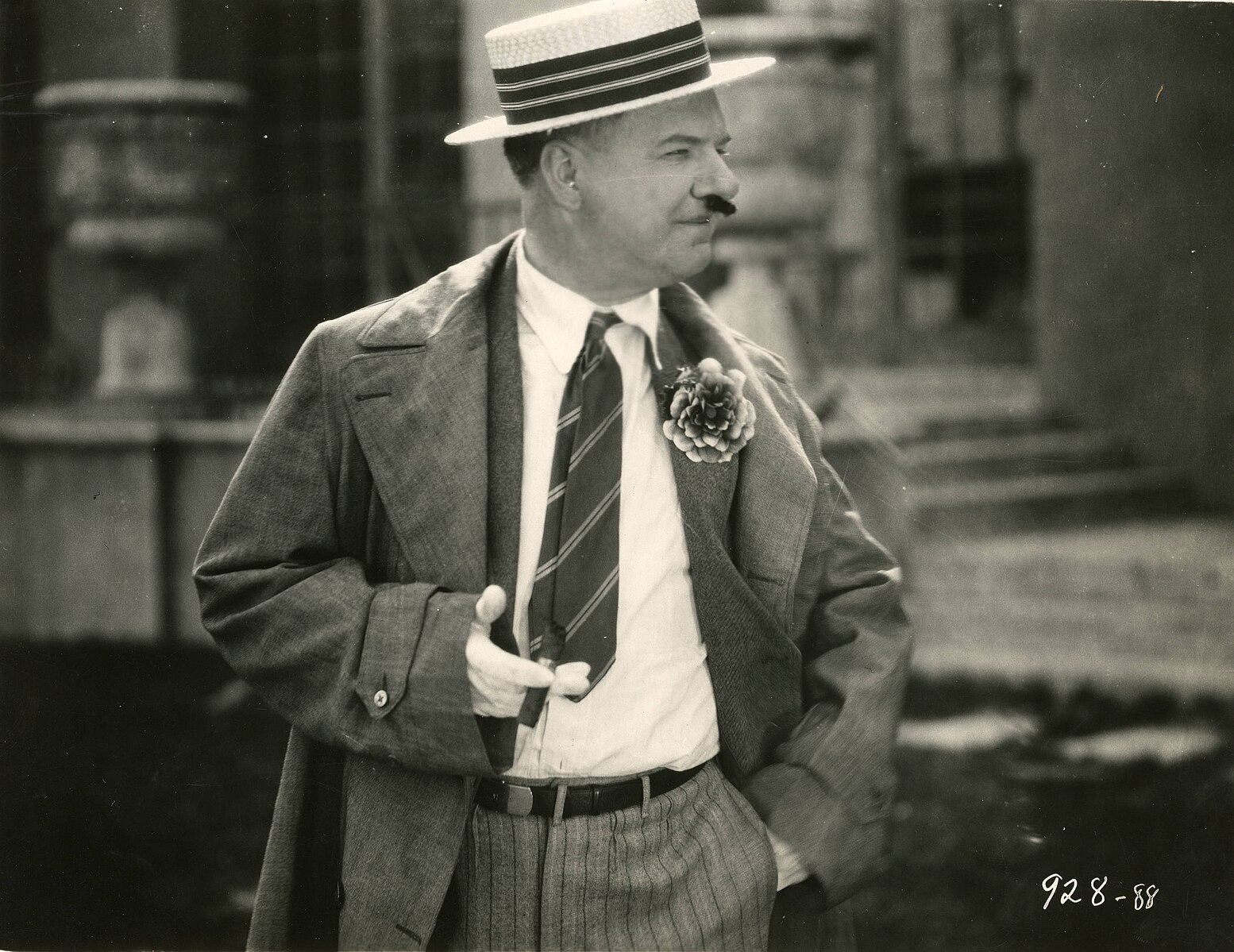 University of Washington, Wikimedia Commons
University of Washington, Wikimedia Commons
28. He Felt The Earth Move
In 1933, Fields joined an ensemble cast for the film International House. While filming a scene in a hotel lobby, a chandelier started swaying, then a lamp fell and everything started shaking. The cameras were rolling when the the earthquake struck, and you can see Fields calmly getting his fellow actors off the set and to safety.
That earthquake claimed 120 lives in the end—so when Paramount saw the footage, they hatched a plan to make some money.
29. It Traveled Across The Country
Paramount lucked into gold with their footage of a startled cast dealing with an earthquake. They released it for newsreels across the country, earning International House some amazing publicity. As the hero of the footage, Fields definitely came out of it looking pretty great too. But once again, it was all a lie.
Years later, when the truth came out, it was clear that Fields had not earned hero status at all.
30. They Rigged It
The truth was that Fields and the director had faked the earthquake scene. They rigged the chandelier, knocked the lamp over, and shook the camera, exploiting a real tragedy for some free publicity. Still, a harmless prank at the end of the day—but this next one put a baby’s health on the line.
31. He Spiked It
In 1934, Fields was making The Old Fashioned Way with child star Baby Leroy. Everyone knew that Fields didn’t like working with children, but what he did took it too far. Fields secretly spiked two-year-old Leroy’s milk bottle with booze. When the baby was too tipsy to work, they had to stop filming for the day.
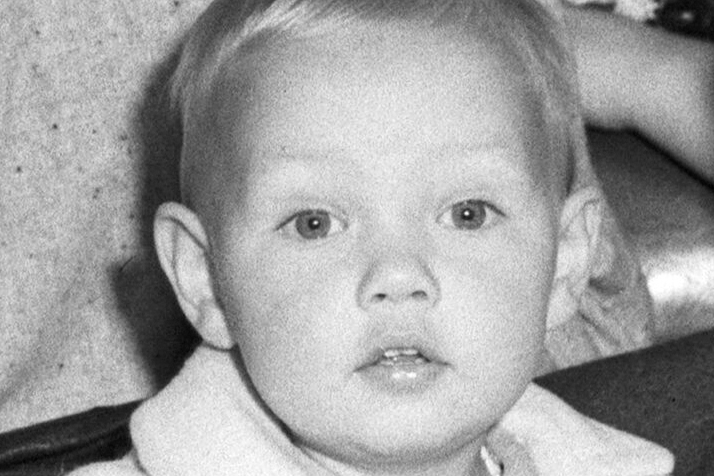 Los Angeles Times, CC BY 4.0, Wikimedia Commons
Los Angeles Times, CC BY 4.0, Wikimedia Commons
32. He Behaved Himself
Next, Fields was acting with another child in David Copperfield. But this time was different. Fields, a huge Charles Dickens fan, had been desperate to appear in this novel adaptation. So, he was on his best behavior with his young co-star. He even stuck closely to the script—something he rarely did.
Instead of fate rewarding him for his good deeds, it gave him a triple whammy of grief.
33. He Faced Tragedies
In 1935, Fields lost three of his closest friends: Sam Hardy and Tammany Young to illness and Will Rogers in a tragic plane crash. Fields took these losses, all in such quick succession, extremely hard. He became severely depressed, even refusing to eat.
His health deteriorated dangerously, and for two years he did nothing but circle the drain. For a while, it seemed like WC Fields would never make another movie again.
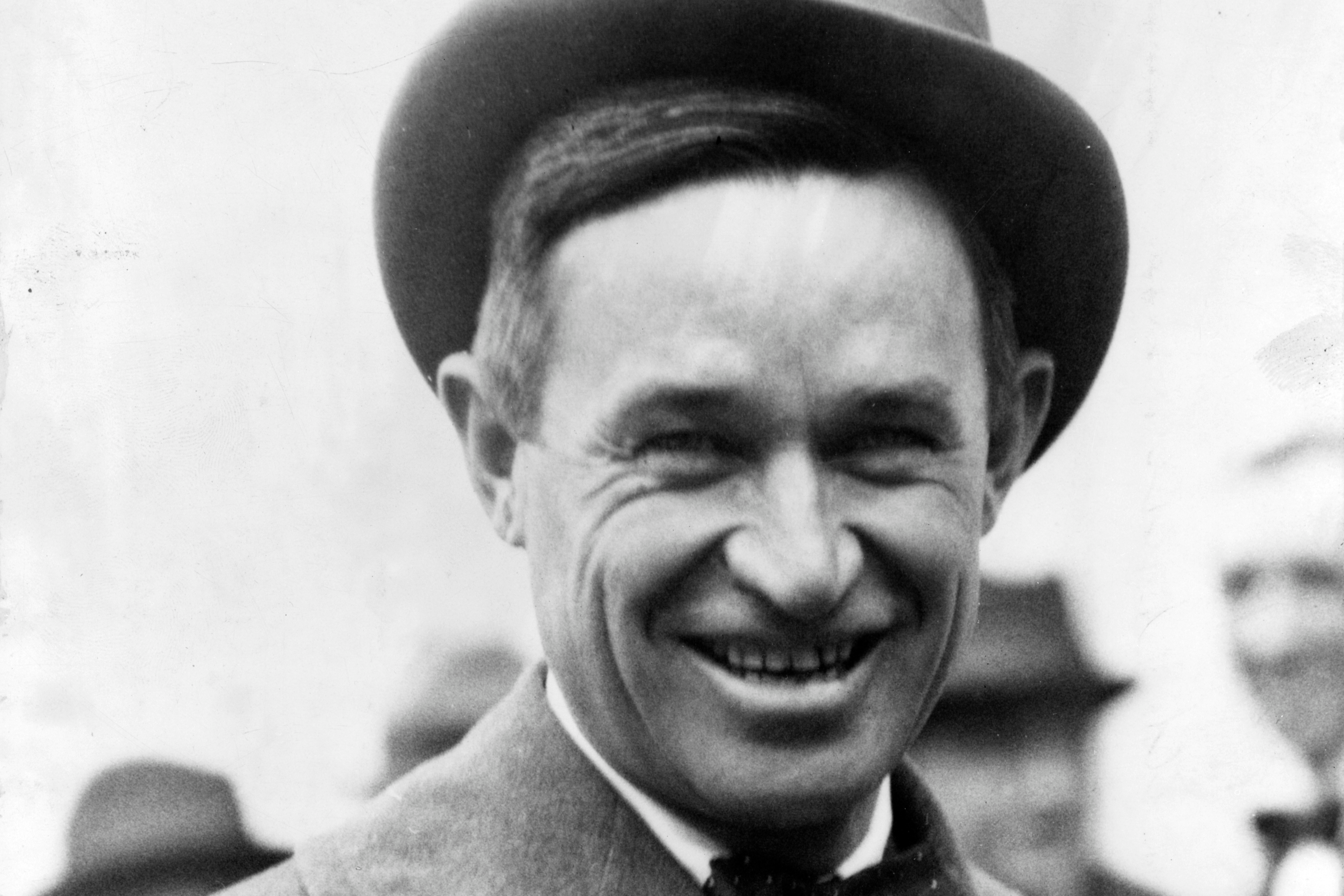 Underwood & Underwood, Wikimedia Commons
Underwood & Underwood, Wikimedia Commons
34. It Was A Battle Royale
By 1937, a miracle happened and Fields felt ready to get back to making movies after two years. His first feature back was The Big Broadcast of 1938, and you’d expect Fields to be happy to be making films again. Nope. He argued constantly with director Mitchell Leisen, who called Fields “unfunny and difficult”.
The battle continued to rage, until the studio had no choice but to step in. Fields could only hope that Paramount would take his side.
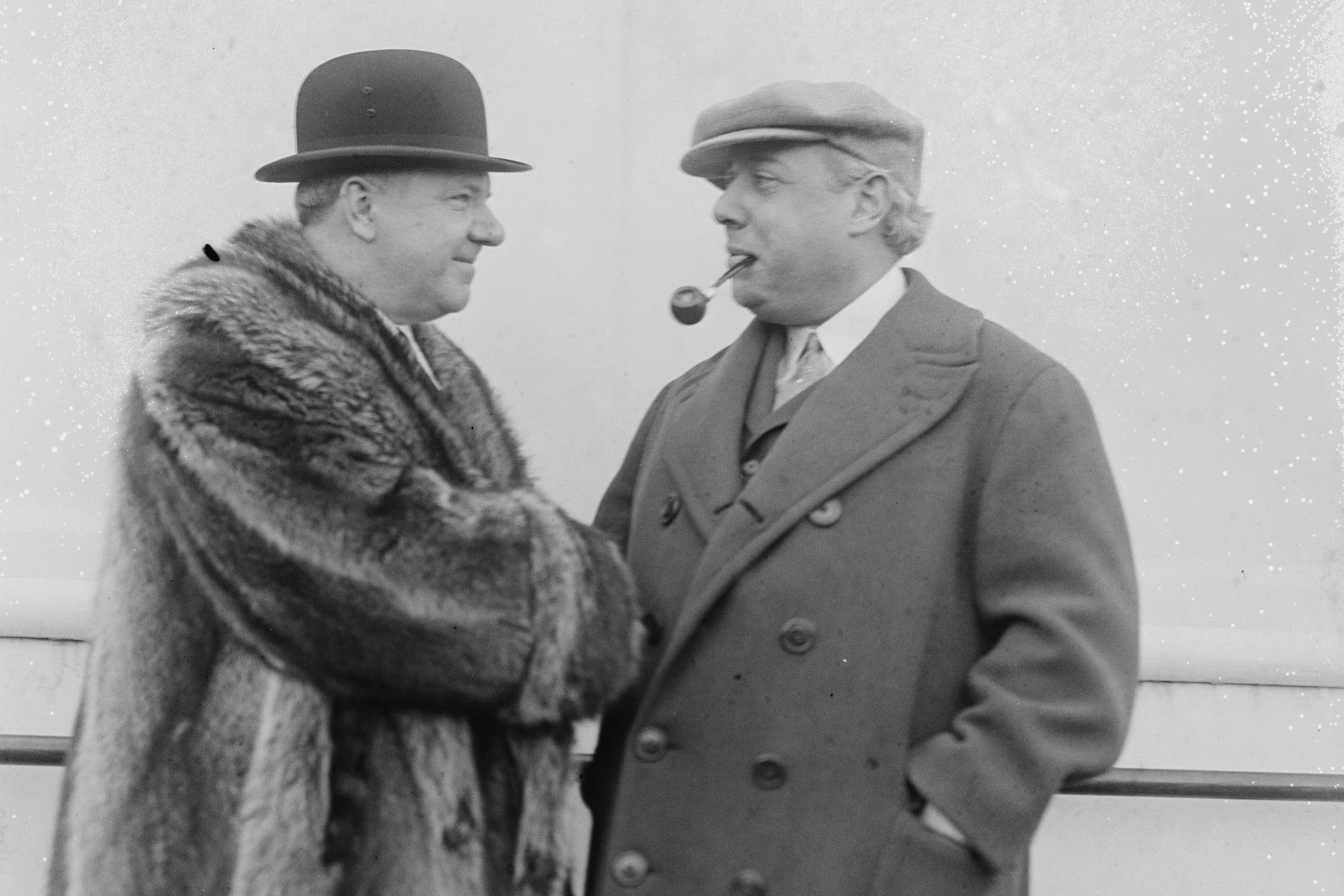 Bain News Service, Wikimedia Commons
Bain News Service, Wikimedia Commons
35. He Flatly Refused
Paramount found out that Fields was refusing to stick to the script, and they demanded that he read only the words on the page. Fields refused and Paramount fired him. The director felt immediate relief—but it was short lived. He suffered a heart attack almost immediately after.
The Big Broadcast of 1938 was a big flop, and Fields’ health was declining again. He needed paying gig that his frail constitution could handle, and he needed one fast.
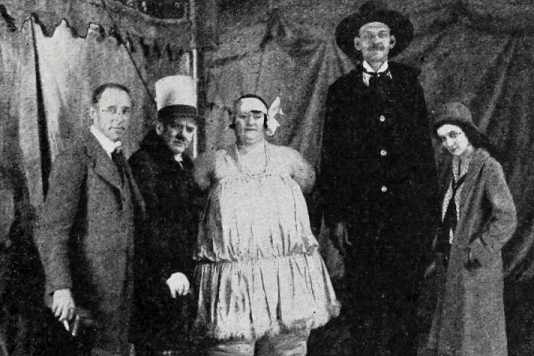 D.W. Griffith Productions / United Artists, Wikimedia Commons
D.W. Griffith Productions / United Artists, Wikimedia Commons
36. He Battled A Dummy
Fields decided that radio was the answer, and he teamed up with ventriloquist Edgar Bergen and his dummy Charlie McCarthy. Fields, who hilariously sparred with the wooden McCarthy, cleverly demanded the same salary he got for making films, and he got it.
These radio shows with Bergen were so popular that Universal soon came calling with an amazing offer.
37. He Rejected A Classic
Fields had burned his bridges with Paramount, so Universal’s offer to make a film with Bergen was the thing Fields needed. But then MGM barged in with another offer. They wanted Fields to play the title character in a then unknown film called The Wizard of Oz. Fields knew that his gig with Bergen was a sure thing, so he said no to MGM.
And then the second thoughts came tumbling in. He’d said no to The Wizard of Oz in order to play a small role opposite a wooden dummy. What was he thinking?
38. He Beefed It Up
Fields wanted to beef up his role in the movie with Bergen to make himself feel better, so as usual, he came up with a plan. He convinced Universal to hire him to create the story. Fields, now in the driver’s seat, immediately turned his character into the lead.
But this was Fields’ MO. Pushing his opinions on producers and writers. Well, watch out Fields, because Universal was about to give you a chance to prove yourself.
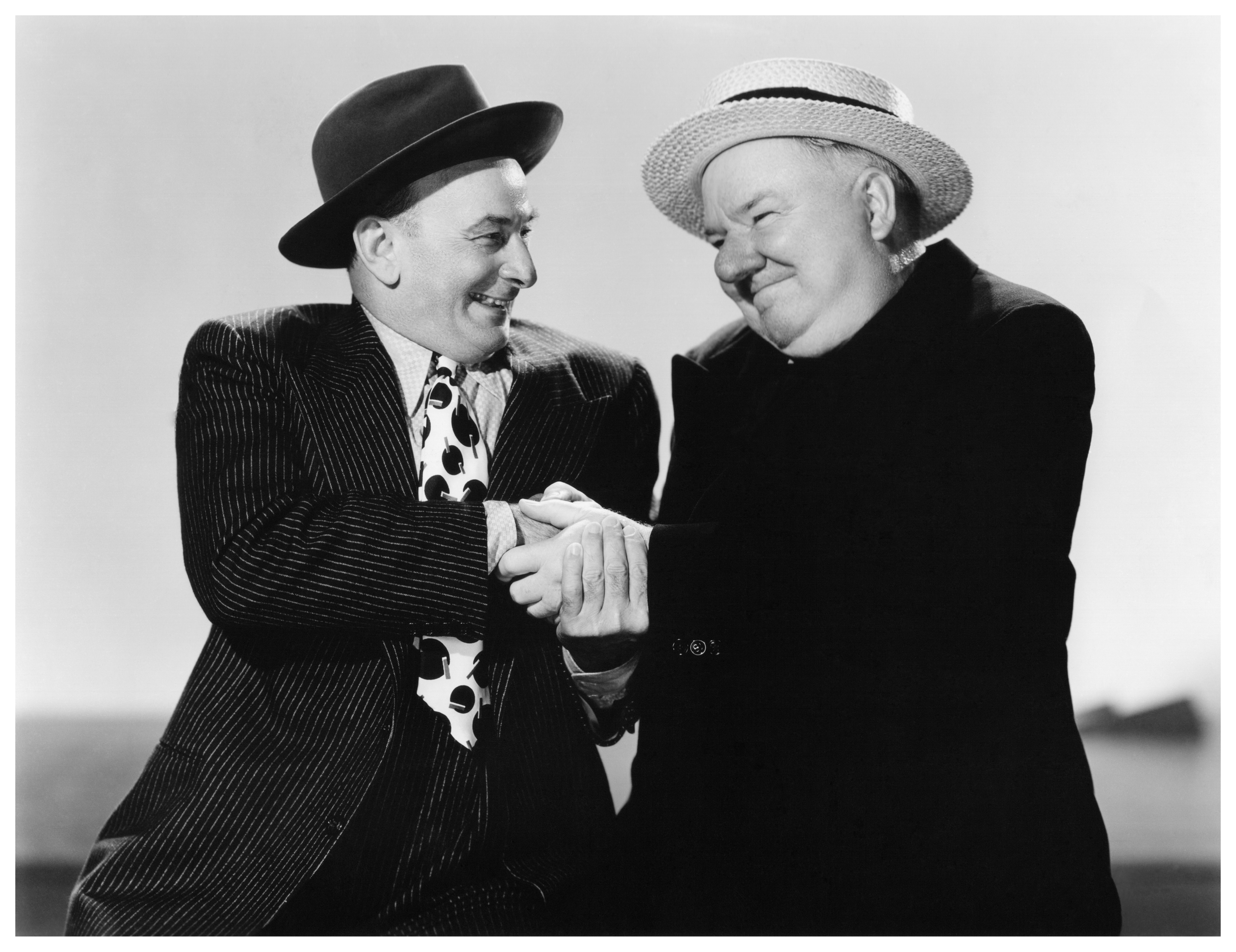 De Carvalho Collection, Getty Images
De Carvalho Collection, Getty Images
39. He Had Complete Control
In 1941, Universal decided to give Fields free rein on one film. This was Never Give a Sucker an Even Break, and Fields stuck to a familiar plot. He would play himself, trying to sell an off-the-wall screenplay to producers. Fields wrote, cast, produced and starred in this film, and I’m sure more than a few people would delight in seeing him fail.
If the movie was a hit, Fields would have the best “I told you so” moment of his life. Of course a flop could end his career. The stakes couldn't be higher.
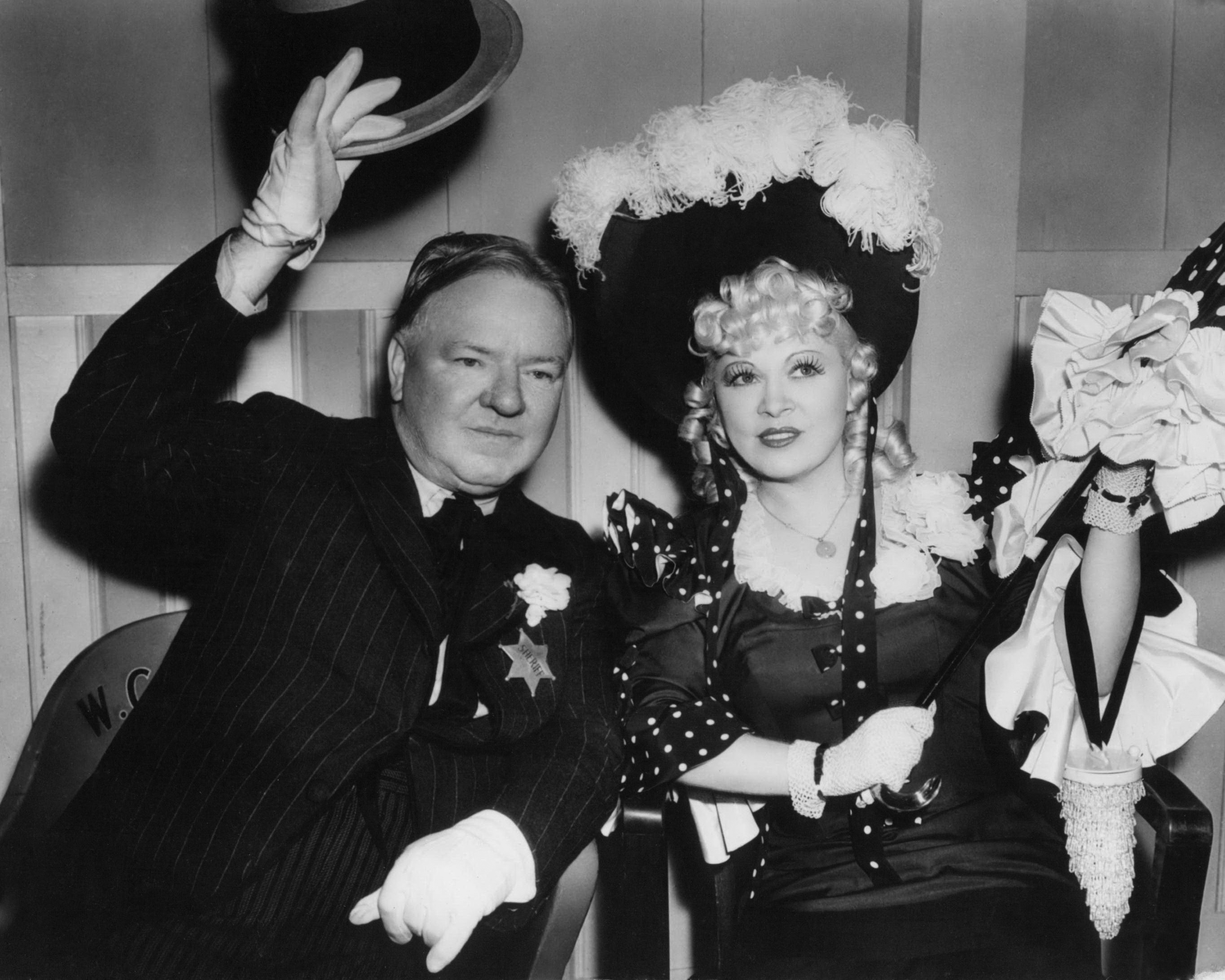 Silver Screen Collection, Getty Images
Silver Screen Collection, Getty Images
40. They Got their Hands On It
For some reason, the censors were immediately on top of Fields' new film. They were so paranoid that they wouldn’t even allow Fields to film images of bananas and pineapples, as they contributed to an “obscene story”. In one scene walks Fields into an ice cream parlor, turns to camera, and says, "This scene is supposed to be in a saloon, but the censor cut it out!"
But the censors were the least of Fields' problems. He was also getting stabbed in the back.
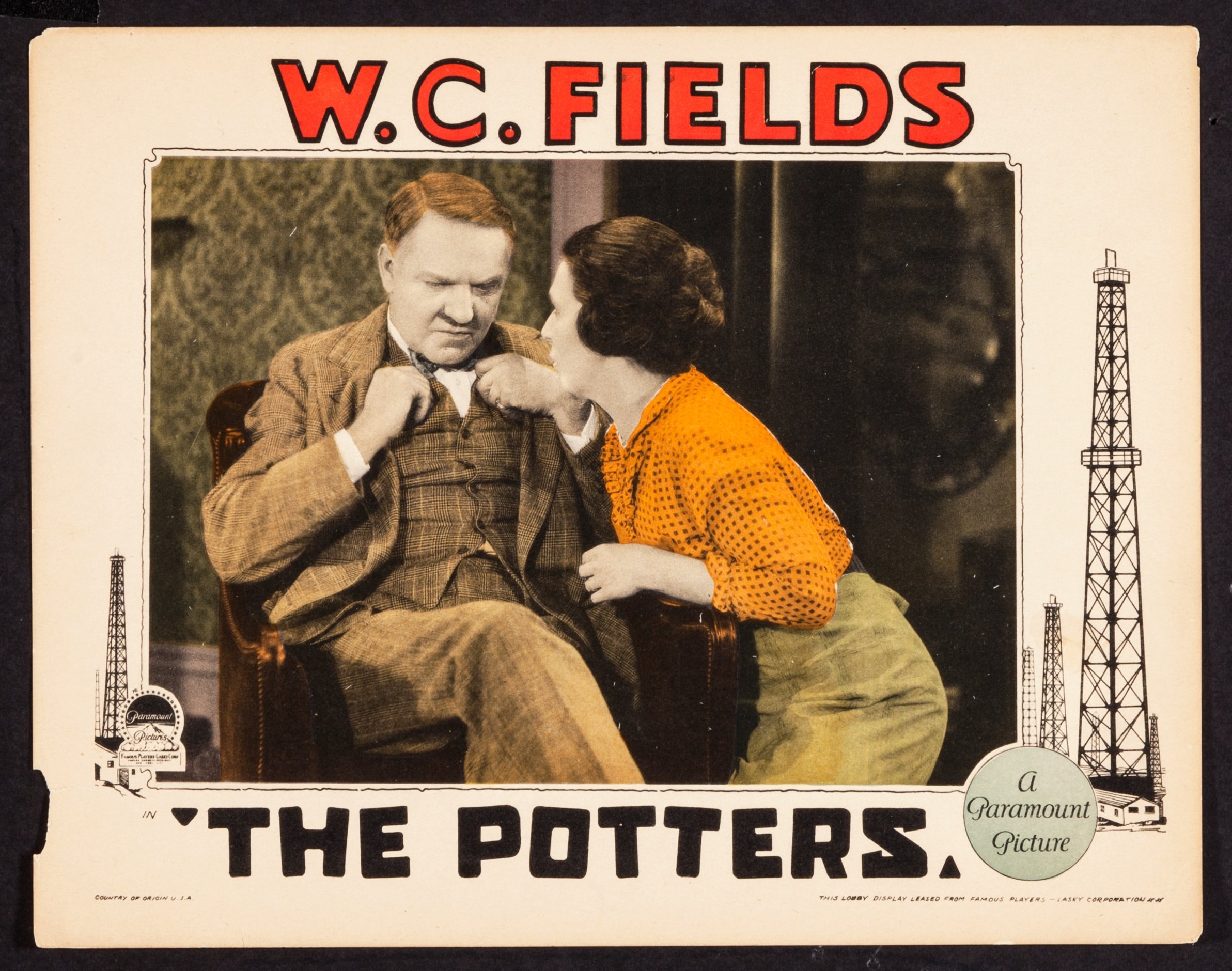 Paramount Pictures, Wikimedia Commons
Paramount Pictures, Wikimedia Commons
41. They Went Behind His Back
Universal was very worried that Never Give a Sucker an Even Break was going to be an incomprehensible mess, so they did something heartless. They went behind Fields’ back and reshot scenes. With the censors' changes and Universal’s meddling, we’ll never know if Fields had made a brilliant film or not. The one that came out of this muddled exercise was a flop.
Fields wiped his feet and got ready for the next one. He didn't yet realize that he'd just gotten his last chance.
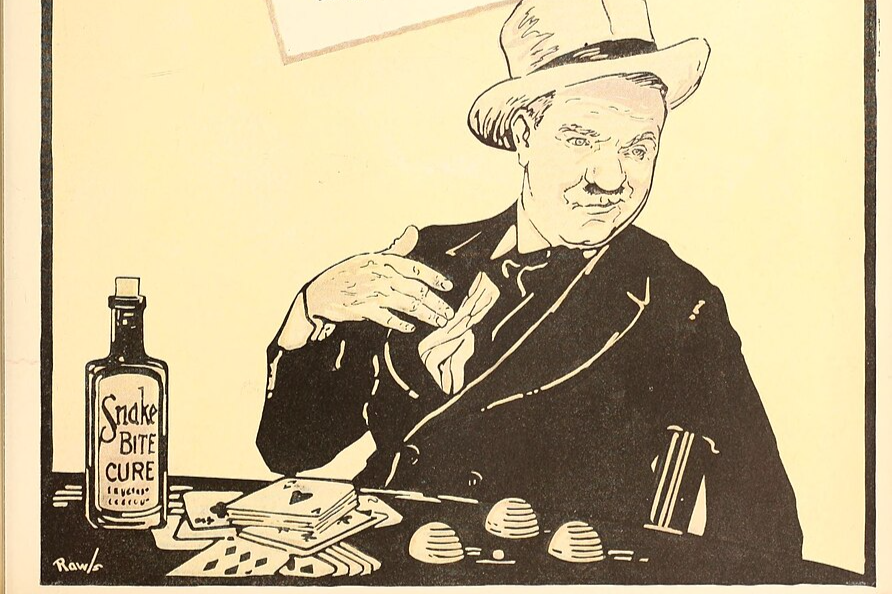 Paramount Pictures, Wikimedia Commons
Paramount Pictures, Wikimedia Commons
42. They Dropped Him
Making Never Give a Sucker an Even Break had been very strenuous on Fields, and his ceaseless drinking was taking a toll on his health. He felt he still had one more film left in him, but Universal didn’t see it that way. They mercilessly dropped Fields to focus their attention on a new pet project: Abbott and Costello.
Fields was out of work, and this led him to some rather disturbing behavior.
43. He Listened In
Fields’ retreated to his home in Hollywood. He would still entertain people, but he had a sinister motive. He hid microphones near the front of his house, and listened in as party guests walked to their cars. If they said something negative, he’d freak them out later by referring to it in a conversation.
This prank was mostly harmless fun, but tragedy also struck him at home.
 Paramount Pictures, Wikimedia Commons
Paramount Pictures, Wikimedia Commons
44. He Was Devastated
Fields’ house was on DeMille Drive, and his only neighbor was Cecil B. DeMille. One day, DeMille’s two-year-old grandson wandered onto Fields’ property while the comedian was out of town. The boy's body was later found in Fields' lily pond.
The accident devastated Fields, and he quickly had the pond filled in, but it was too late for that to make any difference. His health was already failing and his drinking was out of control. This was probably the last straw.
 Trailer screenshot, Wikimedia Commons
Trailer screenshot, Wikimedia Commons
45. He Couldn’t Stop
In 1942, Fields returned to film in the star studded ensemble film Tales of Manhattan. Sadly, Fields’ addiction had gotten worse, and the producers had to beg him to stop drinking from a flask while on set. Fields, claiming he was just drinking lemonade, refused.
His drinking made his scene unusable, and they cut it. Sadly, this would be his last time on a film set. Fields was in his early 60s and in very poor health. He seemed destined to live his remaining years alone.
46. She Was Younger
Actually, Fields had been dating actress Carlotta Monti since 1933. Monti was 27 years younger than him, so his family wrote her off as just a gold digger. Surprisingly, this would turn out to be Fields’ longest relationship. Monti would even go on to write a memoir, WC Fields and Me, which Universal made into a very poorly received movie.
It was Monti who showed Fields a touching kindness at the end of his life.
47. She Did Something Kind
His poor health and constant drinking had led Fields to a Sanatorium in Pasadena, California. To make his last days brighter, Monti did something special for him. Fields had always liked the sound of falling rain, but when the California weather refused to cooperate, Monti sprayed the roof with a garden hose.
On Christmas Day 1946, Fields had a “massive gastric hemorrhage” and passed. Sadly, Monti would not get a reward for her kindness.
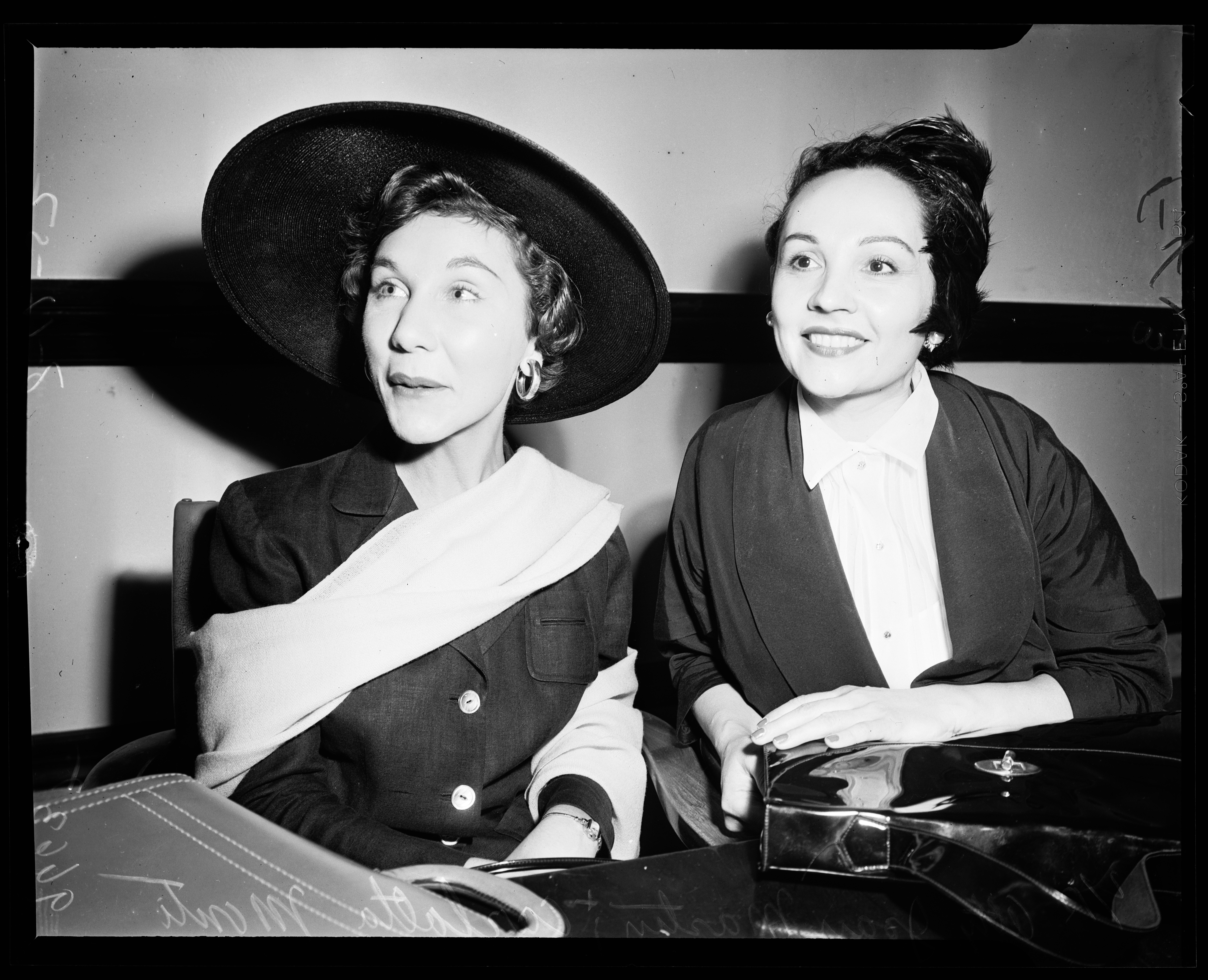 Corbis Historical, Getty Images
Corbis Historical, Getty Images
48. They Kept Her Away
Even though Fields had expressly written that he did not want a funeral, it happened anyway. Monti arrived with a spiritualist that she claimed allowed her to speak with Fields. His first wife Harriet got nervous and forbade the grieving Monti from going anywhere near the casket.
Instead of putting Fields to rest, the day seemed like one big insult. Speaking of afterlife insults, there was one more coming Fields’ way.
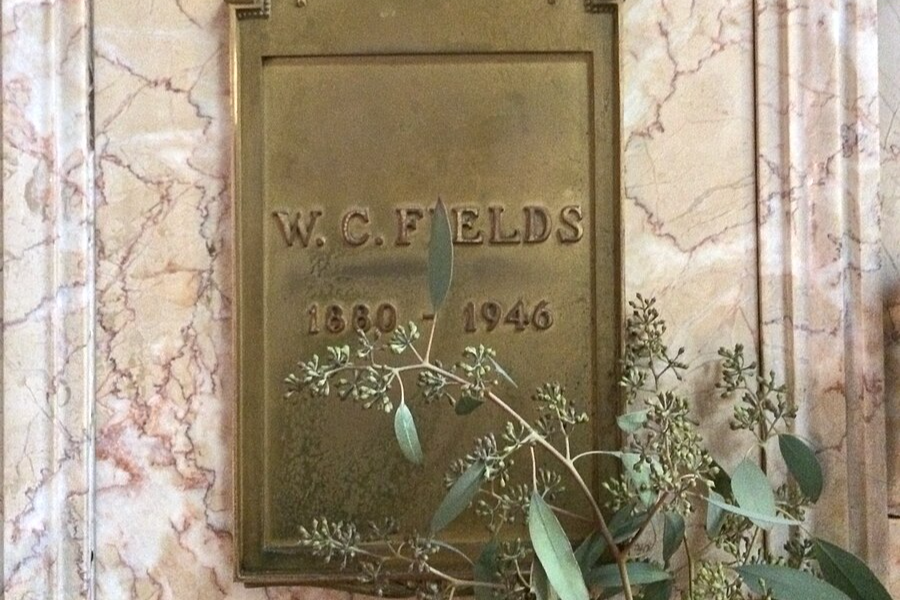 Arthur Dark, CC BY-SA 4.0, Wikimedia Commons
Arthur Dark, CC BY-SA 4.0, Wikimedia Commons
49. He Became the Victim
Remember, Fields had borrowed two of his iconic looks from other sources. Well, later it was time for Fields to be the victim. In the 1960s, the creators of the comic strip The Wizard of Id were looking for inspiration for a lawyer character. They not only completely copied Field’s trademark look, they did something even worse.
 Paramount Pictures, Wikimedia Commons
Paramount Pictures, Wikimedia Commons
50. His Name Lives On
So The Wizard of Id had a lawyer character that looked an awful lot like Fields. When they needed a name for the character, they callously stole from Fields again. One of Fields’ many pseudonyms was "Larson E Whipsnade". Well, in The Wizard of Id, it became “Larsen E Pettifogger”.
The joke is that “Larsen E” sounds like “larceny” which, of course, means theft.

